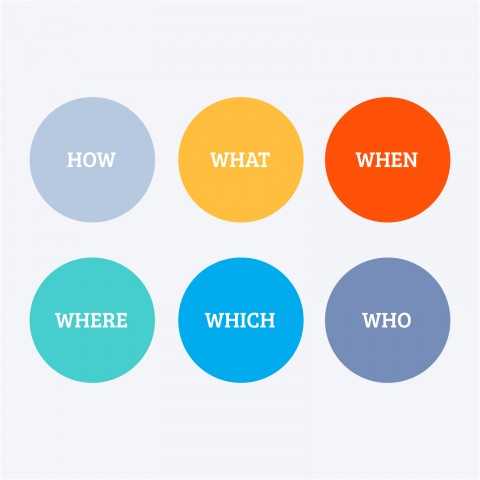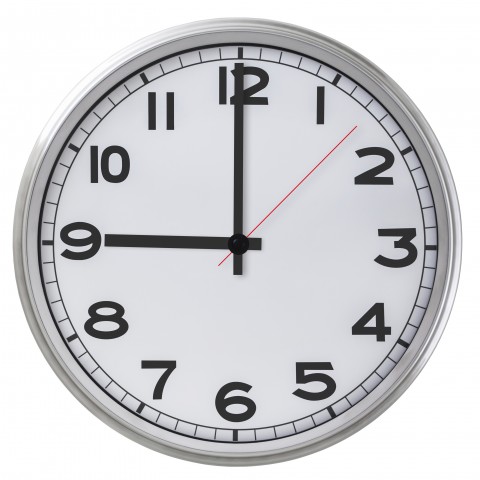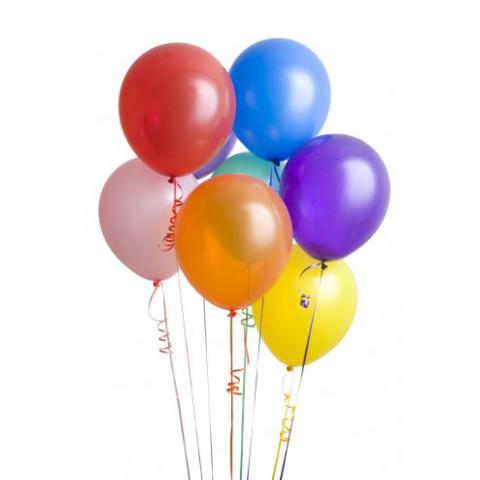
“A person who never made a mistake never tried anything new.” -Albert Einstein
Now every mistake in Chinese you’ve made is justified. They’re little trophies from taking on a challenge and trying something new: a new language (and a difficult one, at that)!
In this article, we’ll cover all the trophies (a.k.a. mistakes), that you and other Chinese learners have made or may end up making. From the most common pronunciation mistakes to grammar mistakes that new learners need to watch out for, ChineseClass101.com will cover it all! We’ll also show you how to make good use of your mistakes.
 Table of Contents
Table of Contents
- Common Chinese Pronunciation Mistakes
- Common Chinese Grammar Mistakes
- A Learner’s Regret
- Turn Mistakes into Tools
- Conclusion
1. Common Chinese Pronunciation Mistakes
If you’re new to the Chinese language, you’re bound to feel dismayed from time to time. The tiniest mistake in pronunciation will make Chinese native speakers go “I don’t know what you’re saying.” It’s not that Chinese people aren’t forgiving; it’s the whole pronunciation system that’s unforgiving.
A- Don’t ignore the tones.
The common pronunciation mistakes that almost every Chinese learner makes have to do with tones, which are the “ups and downs” that come with the syllables.
In Mandarin Chinese, there are four stressed tones and one unstressed tone. They all come in different pitches and durations, and every Chinese word has its own designated tone. In rare cases, one word can have two or three tones.
Using the wrong tone means that you may be saying something you didn’t mean to say, most likely without even noticing. This could lead to embarrassing situations for yourself, and for the people around you.
In the following examples, each pair of words has the same pronunciation when the tones are out of the equation. However, tones are something you never want to ignore when speaking Chinese. In the examples below, you’ll see why you should avoid Chinese tone mistakes at all costs!

Ignoring the tones in Chinese? Big no-no!
To give you a more visual explanation, we’ll use different colors for the five tones in our examples:
First tone (high and flat)
Second tone (rising)
Third tone (dipping low then going up)
Fourth tone (falling)
Neutral tone (unstressed)
ul> ★ 杯子 (bēizi) vs. 被子 (bèizi)杯子 (bēizi): “cup” / “glass” / “mug”
被子 (bèizi): “blanket” / “quilt”
Imagine you’re wandering around a store looking for a cup, or 杯子 (bēizi), so you ask the sales associate where the cups are located. Somehow, you end up staring at a wall of fluffy blankets 被子 (bèizi).

Buy one cup, get one blanket for free?
- ★ 熊猫 (xióngmāo) vs. 胸毛 (xiōngmáo)
熊猫 (xióngmāo): “panda”
胸毛 (xiōngmáo): “chest hair”
During a coffee break, you’re telling your Chinese coworkers, in your cutest voice, that you love pandas: 我爱熊猫. (Wǒ ài xióngmāo.) But what your Chinese coworkers heard was: 我爱胸毛 (Wǒ ài xiōngmáo), or “I love chest hair.”

Panda will be like: “Do you like me or my chest hair?”
- ★ 问 (wèn) vs. 吻 (wěn)
问 (wèn): “to ask”
吻 (wěn): “to kiss”
I know, I know. What you meant to say was: 老师,我想问你…… (Lǎoshī , Wǒ xiǎng wèn nǐ …), or “Teacher, I’d like to ask you…”
What you really said was: 老师,我想吻你…… (Lǎoshī , Wǒ xiǎng wěn nǐ …), or “Teacher, I’d like to kiss you…”

Talk about embarrassing mistakes…
B- Don’t take Pinyin for granted.
Chinese is not an alphabetic language. However, a romanization system using the alphabet was invented to make learning Chinese easier. What a wonderful invention.
Even though most sounds in Pinyin are close to those in English, be careful not to take it for granted that you can sound out Pinyin the way you sound out English words. Below are some easily mistaken sounds in Pinyin.
| DIFFICULT VOWELS (FINALS) | DIFFICULT CONSONANTS (INITIALS) | ||||
| Single Finals | Compound Finals | ||||
| e | as in the “e” in “her” without the “r” | ie | as in the “ye” in “yes” | c | as in the “ts” in “pants” |
| ü | say the “ee” sound with very rounded lips | iu | as in the “ew” in “few” | j | a flatter “j” as in “jeep” |
| üe | say “ü” (see left column) first, then quickly slide to the “ie” sound | q | a flatter “ch” as in “cheese” | ||
| ün | say “ü” (see left column) first, then add an “n” sound | x | a flatter “sh” as in “sheep” | ||
2. Common Chinese Grammar Mistakes
Compared to the pronunciation system, Chinese grammar can be considered an easier aspect of Chinese learning. But there are still some “traps” you need to watch out for.
A- Don’t stay in the back, adverbial phrases!
The basic Chinese word order is the same as that in English: Subject + Verb + Object.
- → Want to learn more basic sentence patterns in Chinese? We have you covered.
However, a lot of English-speakers tend to make mistakes when there are adverbial phrases involved, such as time, place, manner, and instrument phrases. Instead of putting these adverbial phrases before verbs, learners mistakenly put them at the end of the sentence, like in English.
Here are some examples.
| SENTENCE STEM | 我学中文。(Wǒ xué Zhōngwén.) “I learn Chinese.”Subject: 我Verb: 学Object: 中文 | |
| w/ TIME | 我在学中文现在。x | 我现在在学中文。✓ Wǒ xiànzài zài xué Zhōngwén.lit. “I’m now learning Chinese.” |
| w/ PLACE | 我学中文在家。x | 我在家学中文。✓ Wǒ zài jiā xué Zhōngwén.lit. “I’m at home learning Chinese.” |
| w/ MANNER | 我学中文开心地。x | 我开心地学中文。✓ Wǒ kāixīn de xué Zhōngwén.lit. “I happily learn Chinese.” |
| w/ INSTRUMENT | 我学中文用手机。x | 我用手机学中文。✓ Wǒ yòng shǒujī xué Zhōngwén.lit. “I use my phone to learn Chinese.” |
B- Are you using these words and grammar points correctly?
In addition to word order mistakes, we’ve also collected some other common Chinese grammar mistakes made by English-speaking Chinese learners.
❏ Subject + 是 (shì) + Adjective x
Subject + Adverb + Adjective ✓
To describe something or someone with adjectives, no “be” verb (i.e. “am,” “is,” “are,” “were,” etc.) is needed. Instead, an adverb is often used in place of a “be” verb.
For example, to say “She is pretty” in Chinese, we don’t say:
- 她是漂亮。(Tā shì piàoliang.)
lit. “She is pretty.”
Instead, we often say:
- 她很漂亮. (Tā hěn piàoliang.)
lit. “She very pretty.”
Don’t worry about changing the meaning of your sentence with adverbs. There’s a wide variety of adverbs of degree that you can choose to use before your adjectives.
- → To learn more adverbs of degree, check out section 7 in this blog article.
❏ 没 (méi) + V + 了 (le) x
没 (méi) + V ✓
To negate a past action—in other words, to say that something didn’t happen or hasn’t happened—there’s no need to use the past event marker 了 (le), as you would for affirmative past actions.
For example, to say “I didn’t go” in Chinese, we don’t say:
- 我没去了。(Wǒ méi qù le.)
Instead, we say:
- 我没去。(Wǒ méi qù.)
❏ 或者 (huòzhě) vs. 还是 (háishì)
Both words mean “or.” But 还是 (háishì) is used in questions, or in question-like clauses with “whether/if.” 或者 (huòzhě) is used in sentences or statements.
For example:
- 你买的苹果是红色的还是绿色的?
Nǐ mǎi de píngguǒ shì hóngsè de háishì lǜsè de?
“Are the apples you bought red or green?”
- 红色的或者绿色的苹果都好吃。
Hóngsè de píngguǒ huòzhě lǜsè de píngguǒ dōu hǎo chī.
“Both red or green apples are tasty.”
❏ 又 (yòu) vs. 再 (zài)
Both words mean “again.” But 又 (yòu) implies a stronger sense of being impatient, and it’s used when something has happened and is happening again. 再 (zài) is used mostly in imperatives, such as having someone do something one more time.
For example:
- 你怎么又给她打电话?
Nǐ zěnme yòu gěi tā dǎ diànhuà?
“How come you called her again?”
- 不要再给她打电话了。
Búyào zài gěi tā dǎ diànhuà le.
“Don’t call her again.”
- → Check out our Chinese Grammar Made Easy video lessons for beginners on ChineseClass101.com.
3. A Learner’s Regret
One of our users shared with us on Instagram that his biggest regret when starting to learn Chinese is that he only studied Pinyin, the romanization of Chinese, without the Chinese characters, or 汉字 (Hànzì).
As we mentioned earlier, Pinyin is a tool to help students acquire proper pronunciation. The Chinese you actually see on newspapers, road signs, menus, and online chat rooms is only represented by Chinese characters.

Do you know the Chinese characters for Erguotou?
That is to say, knowing Pinyin will only help with oral communication. You may be able to carry out conversations with accurate pronunciation, but you won’t be able to read or write.
Knowing Chinese characters, on the other hand, will help you communicate in every possible way. When you study a Chinese character, you’re learning its pronunciation, meaning, stroke order, and more.
Admittedly, learning the Chinese writing system is twice as much work, or even more, as learning Pinyin alone. But if your goal is to live in Chinese-speaking countries, not learning 汉字 (Hànzì) will be a huge mistake.
A secret bonus, for those who are still reading, is that knowing Chinese characters will also come in handy when you visit other countries which have used, or are still using, Chinese characters (like Japan).
4. Turn Mistakes into Tools
Don’t let your mistakes in Chinese shame you, but rather let them empower you.
We learn, we make mistakes, then we learn from our mistakes. So why not turn your mistakes into learning tools?
Here’s how:
1. Get a designated notebook. Name it “My Mistakes Book” or “My Hidden Treasures” or whatever you like.
2. Every time you realize you’ve made a mistake, record it in your designated notebook right away.
3. After you’ve collected enough mistakes, put them into categories, such as wrong tones, incorrect choice of character, misused grammar, etc.
4. Periodically—once a month is recommended—go through your notebook of mistakes. This will warn your mind not to make these Chinese mistakes again.
5. Many years later, dig out your notebook of mistakes, have a good laugh, and see how far you’ve come. (optional)

Mistakes are the witnesses of progress.
5. Conclusion
“All men make mistakes, but only wise men learn from their mistakes.“ -Winston Churchill
We hope this article has at least helped you get into the right state of mind: to not be afraid of making mistakes.
If you’re learning Chinese on your own, we understand how hard it is, especially when it comes to having someone there to correct your mistakes. Here’s the good news: with a “Premium PLUS” subscription on ChineseClass101.com, you’ll get professional tutoring from our certified Chinese teachers. They’ll answer your questions, assess your assignments, correct your mistakes, and make personal study plans just for you! Sign up here and say goodbye to your mistakes today!
Before you go, let us know in the comments how many of these Chinese mistakes you’ve made before, and which ones are most difficult for you. We look forward to hearing from you!

Master the Essential Chinese Questions and Answers

As a language-learner, it’s important to ask yourself: “Why am I even learning this language?”
Many people learn a new language to interact with people from a different cultural background, in hopes of having a meaningful conversation. And questions are a fantastic tool for learning more about someone and their culture!
“Question” in Chinese is 问题 (wèn tí). Remember that you should never be afraid to ask a 问题 (wèn tí), even if you can’t ask it perfectly. Not being able to speak your mother tongue may be tough, but as long as you try your best to keep a conversation flowing with genuine questions and a smile on your face, most people will be friendly enough to lend you their ears and open their hearts to talk with you.
All in all, being able to ask questions is a huge help when you run out of words. It gives others the opportunity to talk about themselves, and it shows them that you’re curious and want to know more about them.
In this article, we’ll be providing you with the most essential phrases for daily life and up-to-date ways of both asking and answering questions in Chinese. By the time you’re done reading, you’ll be on your way to becoming a professional conversation-starter!
Without further ado, our list of the most common Chinese questions and answers.
 Table of Contents
Table of Contents
- What’s your name?
- Where are you from?
- Do you speak Chinese?
- How long have you been studying Chinese?
- Have you been to China?
- How is ___?
- Do you like [the country’s] food?
- What are you doing?
- What’s wrong?
- How much is it?
- Conclusion
1. What’s your name?

There are two ways to form this question. The first one is the general way of speaking, and the second one is more polite and appropriate when speaking to an elder. In China, significant respect should be shown in your conversations with elders.
Question #1
In Chinese: 你叫什么名字?
Pinyin: Nǐ jiào shén me míng zi?
In English: “What is your name called?”
Additional Notes: Sometimes, people shorten it to 你叫什么 (Nǐ jiào shén me), meaning “What are you called?”
Question #2
In Chinese: 怎么称呼您?
Pinyin: Zěn me chēng hū nín?
In English: “How should I address you?”
Answer Pattern #1
In Chinese: 我的名字是[杰克]。
Pinyin: Wǒ de míng zì shì [Jié kè].
In English: “My name is [Jack].”
Answer Pattern #2
In Chinese: 我叫[贝拉]。
Pinyin: Wǒ jiào [Bèi lā].
In English: “I am called [Bella].”
2. Where are you from?

Wherever your hometown is, we are all from the same big Earth!
The Question
In Chinese: 你从哪里来?
Pinyin: Nǐ cóng nǎ lǐ lái?
In English: “Where are you from?”
Answer Pattern #1
In Chinese: 我来自[北京]。
Pinyin: Wǒ lái zì [Běi jīng].
In English: “I come from China.”
Answer Pattern #2
In Chinese: 我从[上海]来。
Pinyin: Wǒ cóng [Shàng hǎi] lái.
In English: “I am from [Shanghai].”
Answer Pattern #3
In Chinese: 我是[加州人]。
Pinyin: Wǒ shì [Jiā zhōu rén].
In English: “I am a [Californian].”
3. Do you speak Chinese?

Most people enjoy answering questions because almost everyone enjoys expressing themselves!
The Question:
In Chinese: 你会说[中文]吗?
Pinyin: Nǐ huì shuō [Zhōng wén] ma?
In English: “Do you speak [Chinese]?”
Typical Answer #1
In Chinese: 我会说一点。
Pinyin: Wǒ huì shuō yī diǎn.
In English: “I can speak a little bit.”
Typical Answer #2
In Chinese: 我的中文说得还不错。
Pinyin: Wǒ de Zhōng wén shuō de bú cuò.
In English: “I can speak Chinese pretty well.”
Typical Answer #3
In Chinese: 我不怎么会说。
Pinyin: Wǒ bù zěn me huì shuō.
In English: “I can barely speak it.”
4. How long have you been studying Chinese?

To master something truly requires you to pour your heart into it.
The Question
In Chinese: 你学习[中文]有多久了?
Pinyin: Nǐ xué xí [Zhōng wén] yǒu duō jiǔ le?
In English: “How long have you been studying [Chinese]?”
The Typical Answer Pattern
In Chinese: 学了有[三](个)月 / 年 / 周 / 天了。
Pinyin: Xué le yǒu [sān] (gè) yuè / nián / zhōu / tiān le.
In English: “It’s been [three] months / years / weeks / days.”
Additional Notes: 个 (gè) is a quantifier for “months” in this case. Without it, the sentence would sound weird in Chinese. There’s an abundance of quantifiers that play a huge role in the Chinese language.
The Typical Answer
In Chinese: 我刚刚开始学习。
Pinyin: Wǒ gāng gāng kāi shǐ xué xí.
In English: “I just got started.”

5. Have you been to China?
The Question
In Chinese: 你去过[中国]吗?
Pinyin: Nǐ qù guò [Zhōng guó] ma?
In English: “Have you been to [China]?”
Typical Answer #1
In Chinese: 我去[中国]旅游过。
Pinyin: Wǒ qù [Zhōng guó] lǚ yóu guò.
In English: “I went to [China] on a trip.”
Typical Answer #2
In Chinese: 我曾在[美国]留过学。
Pinyin: Wǒ céng zài [Měi guó] liú guò xué.
In English: “I once studied in [the United States] for a while.”
Typical Answer #3
In Chinese: 我在那里呆过一阵。
Pinyin: Wǒ zài nà lǐ dāi guò yī zhèn.
In English: “I visited there for a while.”
6. How is ___?

If you enjoy something, you’d better give it a big thumbs-up!
You can create several simple Chinese questions and answers using the patterns below. Learning this versatile phrase is a good idea!
The Question
In Chinese: [中国]怎么样?
Pinyin: [Zhōng guó] zěn me yàng?
In English: “How is [China]?”
Typical Answer #1
In Chinese: 特别好。
Pinyin: Tè bié hǎo.
In English: “Very good.”
Typical Answer #2
In Chinese: 还不错。
Pinyin: Hái bú cuò.
In English: “Not bad.”
Typical Answer #3
In Chinese: 不怎么样。
Pinyin: Bù zěn me yàng.
In English: “Not that great.”
7. Do you like [the country’s] food?
The Question
In Chinese: 你喜欢[中国]菜吗?
Pinyin: Nǐ xǐ huān [Zhōng guó] cài ma?
In English: “Do you like [Chinese] food?”
Typical Answer #1
In Chinese: 我特别爱吃[中国]菜。
Pinyin: Wǒ tè bié ài chī [Zhōng guó] cài.
In English: “I love [Chinese] food very much.”
Typical Answer #2
In Chinese: 我不是很喜欢[中国]菜。
Pinyin: Wǒ bú shì hěn xǐ huān [Zhōng guó] cài.
In English: “I don’t enjoy [Chinese] food all that much.”
Typical Answer #3
In Chinese: 还好。
Pinyin: Hái hǎo.
In English: “It’s not bad.”
8. What are you doing?
These basic questions and answers in Chinese can be very useful, especially if you’ve made a new friend and want to know what they’re up to.
Question #1
In Chinese: 你在干嘛呢?
Pinyin: Nǐ zài gàn ma ne?
In English: “What are you doing?”
Question #2
In Chinese: 你在忙些什么呢?
Pinyin: Nǐ zài máng xiē shén me ne?
In English: “What are you busy with?”
The Typical Answer Pattern
In Chinese: 我(最近)在(忙)……
Pinyin: Wǒ (zuì jìn) zài (máng) …
In English: “(Recently,) I am (busy with)…”
Additional Notes: The words in parentheses can be omitted depending on the situation.
9. What’s wrong?

Do you wonder what’s wrong with this adorable kid? Learn how to ask in Chinese!
The Question
In Chinese: 有什么不对吗?
Pinyin: Yǒu shén me bú duì ma?
In English: “What’s wrong?”
Typical Answer #1
In Chinese: 没什么大不了的。
Pinyin: Méi shén me dà bù liǎo de.
In English: “Nothing important.”
Typical Answer #2
In Chinese: 我心情不太好。
Pinyin: Wǒ xīn qíng bú tài hǎo.
In English: “I am not in a good mood.”
10. How much is it?

Always think twice: is the stuff you’re going to buy worth it?
The Question
In Chinese: 这个多少钱?
Pinyin: Zhè gè duō shǎo qián?
In English: “How much is it?”
In Chinese: 这个怎么卖?
Pinyin: Zhè gè zěn me mài?
In English: “How do you sell this?”
The Typical Answer
In Chinese: 三十五元一个。
Pinyin: Sān shí wǔ yuán yī gè.
In English: “35 yuan each.”
Additional Notes: The answer to this question is usually the direct number of the cost.
11. Conclusion
After studying these useful formulas and sets of Chinese questions and answers, you must be starting to get the hang of both asking and answering questions in Chinese. Of course, there’s no fixed recipe for any language as it’s more of an expressive artform. Try to customize your own answers based on the sentence structures we provided you. We also recommend that you practice in front of the mirror.
Before you go, why not start practicing what you’ve learned today in the comments section? Write out and answer a few of the questions from this article, or let us know if there are any questions and answers in Chinese you still want to know! We look forward to hearing from you.
Devote some time and effort to practicing conversations about these topics. Effective communication not only requires proper content and decent sentence structures, but also the right facial expressions, tones, emotions, and so much more. A well-developed conversation can go so much deeper than you think!
Now, have some unshakable faith in yourself, just as much as we do: you can become a master of Chinese conversation! We have tons of free resources in Chinese for you, no matter your current level. Explore our website to make the most of your Chinese studies.
Let’s spread our wings and soar together at ChineseClass101.com, your happiest language-learning paradise!

The 10 Most Useful Chinese Sentence Patterns

Language is an art, and learning one can become frustrating due to their complicated and flexible nature. We totally understand your pain as a new Chinese language learner!
How about simplifying it a little bit, and applying some formulas like we do in math?
We’ve prepared these ten most basic and useful Chinese sentence patterns for you. Once you master them, you’ll be able to generate hundreds of natural sentences and converse with ease and confidence in any situation.
Now let’s get to the fun!
 Table of Contents
Table of Contents
- Linking Two Nouns
- Using Adjectives to Describe Nouns
- Expressing “Want”
- Expressing “Need”
- Expressing “Like”
- Politely Asking Someone to Do Something
- Expressing Something in the Past Tense
- Asking for Information About Something
- Asking About Time
- Asking About Location or Position
- Conclusion
1. Linking Two Nouns
Some of the simplest and most common Chinese phrases are those used to connect to nouns. Let’s see how it’s done.
Sentence pattern:
In Chinese: [主语] 是 [宾语]。
Pinyin: [Zhǔ yǔ] shì [bīn yǔ].
In English: “[Subject] is [object].”
Example 1
In Chinese: 约翰是我的哥哥。
Pinyin: Yuē hàn shì wǒ de gē ge.
In English: “John is my older brother.”
Example 2
In Chinese: 我的妈妈是一个十分善良的人。
Pinyin: Wǒ de mā ma shì yī gè shí fēn shàn liáng de rén.
In English: “My mom is a very kind person.”
Example 3
In Chinese: 这只手表是爸爸送给我的毕业礼物。
Pinyin: Zhè zhī shǒu biǎo shì bà ba sòng gěi wǒ de bì yè lǐ wù.
In English: “This watch is a present from my dad for my graduation.”
Example 4
In Chinese: 她是一名老师。
Pinyin: Tā shì yī míng lǎo shī.
In English: “She is a teacher.”
Example 5
In Chinese: 狗是我最喜欢的动物。
Pinyin: Gǒu shì wǒ zuì xǐ huān de dòng wù.
In English: “Dogs are my favorite animal.”
2. Using Adjectives to Describe Nouns

Let’s think about how to describe this…
Sentence pattern:
In Chinese: [主语] (是) 非常/很/太/真 [形容词]。
Pinyin: [Zhǔ yǔ] (shì) fēi cháng/hěn/tài/zhēn [xíng róng cí].
In English: “[Subject] (is) very/so [adjective].”
Additional notes: In Chinese, when we use adjectives to describe things, “is” is omitted most of the time.
Example 1
In Chinese: 你真美。
Pinyin: Nǐ zhēn měi.
In English: “You are so beautiful.”
Example 2
In Chinese: 我们昨晚看的电影实在是太恐怖了。
Pinyin: Wǒ men zuó wǎn kàn de diàn yǐng shí zài shì tài kǒng bù le.
In English: “The movie we watched last night was so scary.”
Example 3
In Chinese: 这道甜点真好吃。
Pinyin: Zhè dào tián diǎn zhēn hǎo chī.
In English: “This dessert is so delicious.”
Example 4
In Chinese: 他可真是个聪明人。
Pinyin: Tā kě zhēn shì gè cōng míng rén.
In English: “He is such a wise person.”
Example 5
In Chinese: 这本书真是太感人了,我看的时候都忍不住哭了。
Pinyin: Zhè běn shū zhēn shì tài gǎn rén le, wǒ kàn de shí hòu dōu rěn bú zhù kū le.
In English: “This book is so touching, I couldn’t help crying when I was reading it.”
3. Expressing “Want”
This Chinese sentence structure is very useful for day-to-day interactions. Let’s take a look:
Sentence pattern:
In Chinese: 我想……
Pinyin: Wǒ xiǎng…
In English: “I want (to)…”
Example 1
In Chinese: 我想吃东西了。
Pinyin: Wǒ xiǎng chī dōng xi le.
In English: “I want to eat some food.”

Don’t we all crave food all the time?
Example 2
In Chinese: 在国外留学了三年之后,我想回家。
Pinyin: Zài guó wài liú xué le sān nián zhī hòu, wǒ xiǎng huí jiā.
In English: “After studying abroad for three years, I want to go back to my hometown.”
Example 3
In Chinese: 今天复习了一天的考试,现在我只想睡觉。
Pinyin: Jīn tiān fù xí le yī tiān de kǎo shì, xiàn zài wǒ zhǐ xiǎng shuì jiào.
In English: “Today, I studied the whole time, and now I only want to go to sleep.”
Example 4
In Chinese: 我想成为一个更好的人。
Pinyin: Wǒ xiǎng chéng wéi yī gè gèng hǎo de rén.
In English: “I want to become a better person.”
Example 5
In Chinese: 夏天是让人想吃西瓜的季节。
Pinyin: Xià tiān shì ràng rén xiǎng chī xī guā de jì jié.
In English: “Summer is a season that makes people want to eat watermelons.”
4. Expressing “Need”
Sentence pattern:
In Chinese: 我需要…… / 我得……
Pinyin: Wǒ xū yào… / Wǒ děi…
In English: “I need (to)…” / “I have to…”
Example 1
In Chinese: 抱歉,现在我必须要走了。
Pinyin: Bào qiàn, xiàn zài wǒ bì xū yào zǒu le.
In English: “I am sorry, I need to go right now.”
Example 2
In Chinese: 打扰一下,我需要用一下卫生间。
Pinyin: Dǎ rǎo yī xià, wǒ xū yào yòng yī xià wèi shēng jiān.
In English: “Excuse me, I need to use the bathroom.”
Example 3
In Chinese: 我需要冷静下来,好好想想接下来应该怎么办。
Pinyin: Wǒ xū yào lěng jìng xià lái, hǎo hao xiǎng xiang jiē xià lái yīng gāi zěn me bàn.
In English: “I need to calm down and think about what I can do next.”
Example 4
In Chinese: 狗狗是人类最好的朋友,他们需要我们的陪伴与关爱。
Pinyin: Gǒu gou shì rén lèi zuì hǎo de péng you, tā men xū yào wǒ men de péi bàn yǔ guān ài.
In English: “Dogs are man’s best friend; they need our companionship and love.”

Gotta have some fun if it’s your birthday!
Example 5
In Chinese: 明天是我的生日,我得穿件漂亮的衣服。
Pinyin: Míng tiān shì wǒ de shēng rì, wǒ děi chuān jiàn piāo liang de yī fu.
In English: “Tomorrow is my birthday; I will have to wear something nice.”
5. Expressing “Like”
This is one of the most important Chinese sentence structures for beginners who want to hold basic conversations with native speakers. Let’s see how it works.
Sentence pattern:
In Chinese: 我喜欢……
Pinyin: Wǒ xǐ huan…
In English: “I like (to)…”
Example 1
In Chinese: 我非常喜欢下厨。
Pinyin: Wǒ fēi cháng xǐ huan xià chú.
In English: “I like to cook very much.”
Example 2
In Chinese: 我喜欢在海边看日落。
Pinyin: Wǒ xǐ huan zài hǎi biān kàn rì luò.
In English: “I like to watch the sunset at the beach.”
Example 3
In Chinese: 爸爸喜欢每天早上八点准时叫我起床。
Pinyin: Bà ba xǐ huan měi tiān zǎo shàng bā diǎn zhǔn shí jiào wǒ qǐ chuáng.
In English: “My dad likes to wake me up exactly at 8:00 a.m. every day.”
Example 4
In Chinese: 孩子们都很喜欢万圣节,因为他们可以得到很多糖果。
Pinyin: Hái zi men dōu hěn xǐ huan wàn shèng jié, yīn wèi tā men kě yǐ dé dào hěn duō táng guǒ.
In English: “Children all like Halloween because they can get lots of candy.”
Example 5

Tell me the truth: isn’t fast food a guilty pleasure of yours sometimes?
In Chinese: 他很喜欢吃快餐。
Pinyin: Tā hěn xǐ huan chī kuài cān.
In English: “He likes to eat fast food a lot.”
6. Politely Asking Someone to Do Something
Sentence pattern:
In Chinese: 请……
Pinyin: Qǐng…
In English: “Please…”
Example 1

Let’s try to be polite when it’s needed and use the word “please.”
In Chinese: 请问我可以进来吗?
Pinyin: Qǐng wèn wǒ kě yǐ jìn lái ma?
In English: “Can I come in, please?”
Example 2
In Chinese: 请不要在我家里穿鞋,谢谢。
Pinyin: Qǐng bú yào zài wǒ jiā lǐ chuān xié, xiè xiè.
In English: “Please don’t wear shoes at my house, thank you.”
Example 3
In Chinese: 能不能请您稍微挪一下位置?
Pinyin: Néng bu néng qǐng nín shāo wēi nuó yī xià wèi zhì.
In English: “Can you please move a little bit?”
Example 4
In Chinese: 请坐。
Pinyin: Qǐng zuò.
In English: “Please sit down.”
Example 5
In Chinese: 请你注意自己的言行。
Pinyin: Qǐng nǐ zhù yì zì jǐ de yán xíng.
In English: “Please mind your own manners.”
7. Expressing Something in the Past Tense
Next on our Chinese sentence patterns list is how to express things that happened in the past. Take a look:
Sentence pattern:
In Chinese: 我(已经)……了。
Pinyin: Wǒ (yǐ jīng)…le.
In English: “I (already)…”
Example 1
In Chinese: 我已经吃过饭了。
Pinyin: Wǒ yǐ jīng chī guò fàn le.
In English: “I already ate.”
Example 2
In Chinese: 我已经把作业做完了。
Pinyin: Wǒ yǐ jīng bǎ zuò yè zuò wán le.
In English: “I already finished my homework.”
Example 3
In Chinese: 我已经放弃了。
Pinyin: Wǒ yǐ jīng fàng qì le.
In English: “I already gave up.”
Example 4
In Chinese: 我之前已经去过这里了。
Pinyin: Wǒ zhī qián yǐ jīng qù guò zhè lǐ le.
In English: “I already went there before.”
Example 5
In Chinese: 我已经把文件传给你了。
Pinyin: Wǒ yǐ jīng bǎ wén jiàn chuán gěi nǐ le.
In English: “I already sent the files to you.”
8. Asking for Information About Something

Sentence pattern:
In Chinese: [主语] 是什么?
Pinyin: [Zhǔ yǔ] shì shén me?
In English: “What is [subject]?”
Example 1
In Chinese: 这个是什么?
Pinyin: Zhè gè shì shén me?
In English: “What is this?”
Example 2
In Chinese: 我们上次去的餐厅是哪一家?
Pinyin: Wǒ men shàng cì qù de cān tīng shì nǎ yī jiā?
In English: “What was the restaurant we went to last time?”
Example 3
In Chinese: 你的名字是什么?
Pinyin: Nǐ de míng zì shì shén me?
In English: “What is your name?”
Example 4
In Chinese: 你学的是什么专业?
Pinyin: Nǐ xué de shì shén me zhuān yè?
In English: “What is your major?”
Example 5
In Chinese: 你的爱好是什么?
Pinyin: Nǐ de ài hào shì shén me?
In English: “What is your hobby?”
9. Asking About Time
Sentence pattern:
In Chinese: [事件]是什么时候?
Pinyin: [Shì jiàn] shì shén me shí hou?
In English: “When is [event]?”
Example 1
In Chinese: 会议是什么时候?
Pinyin: Huì yì shì shén me shí hou?
In English: “When is the meeting?”
Example 2
In Chinese: 你的生日是什么时候?
Pinyin: Nǐ de shēng rì shì shén me shí hou?
In English: “When is your birthday?”
Example 3
In Chinese: 你的航班是什么时候到达机场?
Pinyin: Nǐ de háng bān shì shén me shí hou dào dá jī chǎng?
In English: “When is the arrival time for your flight?”
Example 4
In Chinese: 你想要什么时候去露营?
Pinyin: Nǐ xiǎng yào shén me shí hou qù lù yíng?
In English: “When do you want to go camping?”
Example 5
In Chinese: 我们第一次见面是什么时候?
Pinyin: Wǒ men dì yī cì jiàn miàn shì shén me shí hou?
In English: “When did we meet for the first time?”
10. Asking About Location or Position

The final Chinese language sentence structure we’ll cover today is how to ask for location or position.
Sentence pattern:
In Chinese: [地方]在哪里?
Pinyin: [Dì fang] zài nǎ lǐ?
In English: “Where is [place]?”
Example 1
In Chinese: 请问卫生间在哪里?
Pinyin: Qǐng wèn wèi shēng jiān zài nǎ lǐ?
In English: “Where is the restroom?”
Example 2
In Chinese: 你的家乡在哪里?
Pinyin: Nǐ de jiā xiāng zài nǎ lǐ?
In English: “Where is your hometown?”
Example 3
In Chinese: 请问电梯在哪里?
Pinyin: Qǐng wèn diàn tī zài nǎ lǐ?
In English: “Where is the elevator?”
Example 4
In Chinese: 你们是在哪里举办的婚礼?
Pinyin: Nǐ men shì zài nǎ lǐ jǔ bàn de hūn lǐ?
In English: “Where did you have your wedding?”
Example 5
In Chinese: 你们是在哪里遇见的?
Pinyin: nǐ men shì zài nǎ lǐ yù jiàn de?
In English: “Where did you guys meet?”
11. Conclusion
Weren’t those some incredibly convenient Chinese sentence patterns? Now that you know the “formulas,” I’m sure that soon enough you’ll be able to apply them and create sentences of your own for any situation! Of course, only knowing the basic Chinese grammar and sentence patterns isn’t enough to grasp the complex and artistic Chinese language.
I’m sure your ambition as a language-learner goes beyond this, right? If you’re ready to expand your horizon in Chinese, just visit ChineseClass101.com for the most professional, unlimited Chinese resources. You can start learning Chinese in the next thirty seconds with a free lifetime account; we promise that you won’t regret it!

100 Classic Chinese Verbs in Daily Life

Verbs are an essential component of a sentence, and they’re at the core of our conversations as they provide key information. Everyone knows that a sentence isn’t complete without a verb!
It’s not difficult to master the basic rules of common Chinese verbs as they don’t have any conjugation. However, there are additional phrases you can add to the sentence in order to indicate a certain time frame and make the sentence sound more natural. Now, let’s dive right into this simple introduction to common Chinese verbs!
 Table of Contents
Table of Contents
- Physical Verbs vs. Mental Verbs
- Linking Verbs
- Helping Verbs
- Chinese Verbs and Essentials of Grammar
- Conclusion
1. Physical Verbs vs. Mental Verbs

Some of the most useful Chinese verbs are action verbs, and like in English, there are two kinds of action verbs: physical and mental. We have a list for each one!
1- Physical verbs
- To go – 去 (qù)
In Chinese: 我明天去阿姨家给她过生日。
Pinyin: Wǒ míng tiān qù ā yí jiā gěi tā guò shēng rì.
In English: “I am going to my aunt’s house to celebrate her birthday.”
- To come – 来 (lái)
In Chinese: 我很期待你来我家做客。
Pinyin: Wǒ hěn qī dài nǐ lái wǒ jiā zuò kè.
In English: “I look forward to having you as a guest to come to my house.”
- To look – 看 (kàn)
In Chinese: 快看!这里的景色多美啊。
Pinyin: Kuài kàn! Zhè lǐ de jǐng sè duō měi a.
In English: “Look! How beautiful the landscape is here.”
- To tell – 告诉 (gào sù)
In Chinese: 老师告诉我们要学会培养自己独立思考的能力。
Pinyin: Lǎo shī gào sù wǒ men yào xué huì péi yǎng zì jǐ dú lì sī kǎo de néng lì.
In English: “The teacher told us to learn to think independently.”
- To ask – 问 (wèn)
In Chinese: 没有方向感的我经常向别人问路。
Pinyin: Méi yǒu fāng xiàng gǎn de wǒ jīng cháng xiàng bié rén wèn lù.
In English: “I have no sense of direction, so I always ask others for directions.”
- To try – 尝试 (cháng shì)
In Chinese: 我想要尝试更多的亚洲美食。
Pinyin: Wǒ xiǎng yào cháng shì gèng duō de yà zhōu měi shí.
In English: “I want to try more Asian food.”
- To promise – 承诺 (chéng nuò)
In Chinese: 爸爸承诺我会在我明年的生日送我一部相机。
Pinyin: Bà ba chéng nuò wǒ huì zài wǒ míng nián de shēng rì sòng wǒ yī bù xiàng jī.
In English: “Dad promised to give me a camera for my birthday next year.”

- To work – 工作 (gōng zuò)
In Chinese: 我希望将来可以找一份自己热爱的工作。
Pinyin: Wǒ xī wàng jiāng lái kě yǐ zhǎo yī fèn zì jǐ rè ài de gōng zuò.
In English: “I hope to find a job that I am passionate about in the future.”
- To eat – 吃 (chī)
In Chinese: 我很喜欢吃披萨。
Pinyin: Wǒ hěn xǐ huan chī pī sa.
In English: “I love eating pizza.”
- To drink – 喝 (hē)
In Chinese: 在夏天喝橙汁是一件非常享受的事情。
Pinyin: Zài xià tiān hē chéng zhī shì yī jiàn fēi cháng xiǎng shòu de shì qing.
In English: “It’s a very enjoyable thing to drink orange juice in summer.”
- To take – 拿 (ná)
In Chinese: 请拿好您的随身物品。
Pinyin: Qǐng ná hǎo nín de suí shēn wù pǐn.
In English: “Please take care of your belongings.”
- To give – 给 (gěi)
In Chinese: 我给了他一封信。
Pinyin: Wǒ gěi le tā yī fēng xìn.
In English: “I gave him a letter.”
- To use – 用 (yòng)
In Chinese: 我不知道怎么用这款相机。
Pinyin: Wǒ bù zhī dào zěn me yòng zhè kuǎn xiàng jī.
In English: “I have no idea how to use this camera.”
- To find – 找 (zhǎo)
In Chinese: 她很擅长玩捉迷藏,我们每次都要找她很久。
Pinyin: Tā hěn shàn cháng wán zhuō mí cáng, wǒ men měi cì dōu yào zhǎo tā hěn jiǔ.
In English: “She is very good at hide-and-seek; we always take a long time to find her.”
- To write – 写 (xiě)
In Chinese: 她很喜欢写诗。
Pinyin: Tā hěn xǐ huan xiě shī.
In English: “She really enjoys writing poems.”
- To run – 跑 (pǎo)
In Chinese: 我听说兔子跑得很快。
Pinyin: Wǒ tīng shuō tù zi pǎo de hěn kuài.
In English: “I heard that rabbits run fast.”
- To hear – 听 (tīng)
In Chinese: 狗可以听到很多人类耳朵听不到的声音。
Pinyin: Gǒu kě yǐ tīng dào hěn duō rén lèi ěr duǒ tīng bú dào de shēng yīn.
In English: “Dogs can hear many sounds that the human ear can’t.”
- To dance – 跳舞 (tiào wǔ)
In Chinese: 他跳舞很好。
Pinyin: Tā tiào wǔ hěn hǎo.
In English: “He dances well.”

- To smile – 微笑 (wēi xiào)
In Chinese: 她总是微笑着向每一个人问好。
Pinyin: Tā zǒng shì wēi xiào zhe xiàng měi yī gè rén wèn hǎo.
In English: “She always smiles and says hello to everyone.”
- To explain – 解释 (jiě shì)
In Chinese: 请你把这件事的发生过程解释清楚。
Pinyin: Qǐng nǐ bǎ zhè jiàn shì de fā shēng guò chéng jiě shì qīng chǔ.
In English: “Please clearly explain how this happened.”
- To buy – 买 (mǎi)
In Chinese: 很多女生都喜欢买包和化妆品。
Pinyin: Hěn duō nǚ shēng dōu xǐ huān mǎi bāo hé huà zhuāng pǐn.
In English: “Many girls like to buy purses and makeup supplies.”
- To sell – 卖 (mài)
In Chinese: 这家店卖的很多东西都是二手的。
Pinyin: Zhè jiā diàn mài de hěn duō dōng xī dōu shì èr shǒu de.
In English: “This shop sells many second-hand items.”
- To arrive – 到达 (dào dá)
In Chinese: 每个人都准时到达了会议现场。
Pinyin: Měi gè rén dōu zhǔn shí dào dá le huì yì xiàn chǎng.
In English: “Everyone arrived on time to the meeting.”
- To pay – 付款 (fù kuǎn)
In Chinese: 请问我应该在哪里付款?
Pinyin: Qǐng wèn wǒ yīng gāi zài nǎ lǐ fù kuǎn?
In English: “Can you please tell me where I can pay?”
- To drive – 开车 (kāi chē)
In Chinese: 妈妈总会开车接我放学。
Pinyin: Mā ma zǒng huì kāi chē jiē wǒ fàng xué.
In English: “My mom always drives to pick me up after school.”
- To sing – 唱歌 (chàng gē)
In Chinese: 妹妹总喜欢唱歌给我听。
Pinyin: Mèi mei zǒng xǐ huan chàng gē gěi wǒ tīng.
In English: “My younger sister always likes to sing for me.”
- To marry – 结婚 (jié hūn)
In Chinese: 他终于和自己心爱的女孩结婚了。
Pinyin: Tā zhōng yú hé zì jǐ xīn ài de nǚ hái jié hūn le.
In English: “He finally marries the girl he loves.”
- To wear – 穿 (chuān)
In Chinese: 不是所有女孩都喜欢穿裙子。
Pinyin: Bú shì suǒ yǒu nǚ hái dōu xǐ huan chuān qún zi.
In English: “Not all girls like to wear dresses.”
- To walk – 走 (zǒu)
In Chinese: 我很喜欢吃完饭之后在街上走走。
Pinyin: Wǒ hěn xǐ huan chī wán fàn zhī hòu zài jiē shàng zǒu zǒu.
In English: “I like to walk on the streets after finishing a meal.”
- To travel – 旅行 (lǚ xíng)
In Chinese: 他喜欢去有田园气息的地方旅游。
Pinyin: Tā xǐ huan qù yǒu tián yuán qì xī de dì fang lǚ yóu.
In English: “He likes to travel around rural places.”
- To study – 研究 (yán jiū)
In Chinese: 这位科学家研究了很多学术性论文。
Pinyin: Zhè wèi kē xué jiā yán jiū le hěn duō xué shù xìng lùn wén.
In English: “This scientist has studied many academic papers.”

- To learn – 学习 (xué xí)
In Chinese: 我突然一时兴起想学习吉他了。
Pinyin: Wǒ tū rán yī shí xìng qǐ xiǎng xué xí jí tā le.
In English: “On a whim, I suddenly wanted to learn guitar.”
- To stop – 停 (tíng)
In Chinese: 一只小蝴蝶停在了花朵上。
Pinyin: Yī zhī xiǎo hú dié tíng zài le huā duǒ shàng.
In English: “A butterfly stopped on a flower.”
- To stay – 留下 (liú xià)
In Chinese: 吃完饭后,有几个朋友在我家留下打游戏。
Pinyin: chī wán fàn hòu, yǒu jǐ gè péng yǒu zài wǒ jiā liú xià dǎ yóu xì.
In English: “After we ate, a few friends stayed at my house to play games.”
- To send – 发送 (fā sòng)
In Chinese: 我已经把简历发送出去了。
Pinyin: Wǒ yǐ jīng bǎ jiǎn lì fā sòng chū qù le.
In English: “I already sent my resume.”
- To sleep – 睡觉 (shuì jiào)
In Chinese: 每次一吃完饭我就想睡觉。
Pinyin: Měi cì yī chī wán fàn wǒ jiù xiǎng shuì jiào.
In English: “Every time I finish a meal, I want to go to sleep.”
- To say – 说 (shuō)
In Chinese: 可以请你再说一遍吗?
Pinyin: Kě yǐ qǐng nǐ zài shuō yī biàn ma?
In English: “Can you please say that again?”
- To get – 得到 (dé dào)
In Chinese: 我很想得到这款限量版的球鞋。
Pinyin: Wǒ hěn xiǎng dé dào zhè kuǎn xiàn liàng bǎn de qiú xié.
In English: “I really want to get this pair of limited edition shoes.”
- To own – 拥有 (yōng yǒu)
In Chinese: 我真想拥有一只小狗。
Pinyin: Wǒ zhēn xiǎng yōng yǒu yī zhī xiǎo gǒu.
In English: “I really want to own a puppy.”
- To receive – 收到 (shōu dào)
In Chinese: 你收到我的邮件了吗?
Pinyin: Nǐ shōu dào wǒ de yóu jiàn le ma?
In English: “Did you receive my email?”
- To protect – 保护 (bǎo hù)
In Chinese: 我们都要有保护小动物的意识。
Pinyin: Wǒ men dōu yào yǒu bǎo hù xiǎo dòng wù de yì shí.
In English: “We should all have the sense to protect animals.“
- To provide – 提供 (tí gòng)
In Chinese: 这家店提供免邮的服务。
Pinyin: Zhè jiā diàn tí gòng miǎn yóu de fú wù.
In English: “This shop provides free shipping service.”
- To read – 读 (dú)
In Chinese: 他很热爱阅读,经常随手带着一本书。
Pinyin: Tā hěn rè ài yuè dú, jīng cháng suí shǒu dài zhe yī běn shū.
In English: “He loves to read and always takes a book with him wherever he goes.”
- To put – 放 (fàng)
In Chinese: 请你在读完这本书之后把它放回图书馆。
Pinyin: Qǐng nǐ zài dú wán zhè běn shū zhī hòu bǎ tā fàng huí tú shū guǎn.
In English: “Please put this book back in the library after you are done with reading.”
- To play – 玩 (wán)
In Chinese: 很多小孩都喜欢在沙滩边玩沙子。
Pinyin: Hěn duō xiǎo hái dōu xǐ huan zài shā tān biān wán shā zi.
In English: “Many kids like to play in sand at the beach.”

- To lose – 失去 (shī qù)
In Chinese: 很多时候我们只有在失去了之后才会珍惜。
Pinyin: Hěn duō shí hou wǒ men zhī yǒu zài shī qù le zhī hòu cái huì zhēn xī.
In English: “Very often, we only start to cherish something after we lose it.”
- To leave – 离开 (lí kāi)
In Chinese: 妈妈在上班离开家前叮嘱我要记得吃药。
Pinyin: Mā ma zài shàng bān lí kāi jiā qián dīng zhǔ wǒ yào jì de chī yào.
In English: “Mom reminded me to take the medicine right before she left home to go to work.”
- To invite – 邀请 (yāo qǐng)
In Chinese: 姐姐邀请了很多亲戚去参加她的婚礼。
Pinyin: Jiě jie yāo qǐng le hěn duō qīn qi qù cān jiā tā de hūn lǐ.
In English: “My older sister invited many families to go to her wedding.”
- To help – 帮助 (bāng zhù)
In Chinese: 爸爸是个很善良的人,他很喜欢帮助别人。
Pinyin: Bà ba shì gè hěn shàn liáng de rén, tā hěn xǐ huan bāng zhù bié rén.
In English: “My dad is a very kind person, he really likes to help others.”
- To cook – 做饭 (zuò fàn)
In Chinese: 现在很多人都忙得没有时间做饭,经常叫外卖。
Pinyin: Xiàn zài hěn duō rén dōu máng de méi yǒu shí jiān zuò fàn, jīng cháng jiào wài mài.
In English: “Many people nowadays are too busy to have time to cook; they always get take-out.”
2- Mental verbs
- To know – 知道 (zhī dào)
In Chinese: 很多人明知道抽烟是不健康的,还是忍不住经常抽烟。
Pinyin: Hěn duō rén míng zhī dào chōu yān shì bú jiàn kāng de, hái shì rěn bú zhù jīng cháng chōu yān.
In English: “Many people know that smoking is unhealthy, but they still can’t help smoking.”
- To think – 认为 (rèn wéi)
In Chinese: 我认为你这么做是不对的。
Pinyin: Wǒ rèn wéi nǐ zhè me zuò shì bú duì de.
In English: “I think it is not right for you to do it.”
- To want – 想要 (xiǎng yào)
In Chinese: 我想要环球旅游。
Pinyin: Wǒ xiǎng yào huán qiú lǚ yóu.
In English: “I want to travel all over the world.”
- To believe – 相信 (xiāng xìn)
In Chinese: 我相信总有一天我的梦想会实现的。
Pinyin: Wǒ xiàng xìn zǒng yǒu yī tiān wǒ de mèng xiǎng huì shí xiàn de.
In English: “I believe that my dream will come true one day.”
- To expect – 期待 (qī dài)
In Chinese: 小孩子总是很期待自己的圣诞节礼物。
Pinyin: Xiǎo hái zi zǒng shì hěn qī dài zì jǐ de shèng dàn jié lǐ wù.
In English: “Children always look forward to their Christmas gift.”
- To understand – 明白 (míng bái)
In Chinese: 长大后,我逐渐明白了很多事。
Pinyin: Zhǎng dà hòu, wǒ zhú jiàn míng bái le hěn duō shì.
In English: “I started to understand many things while growing up.”
- To like – 喜欢 (xǐ huān)
In Chinese: 我非常喜欢读书。
Pinyin: Wǒ fēi cháng xǐ huan dú shū.
In English: “I like reading very much.”
- To hate – 讨厌 (tǎo yàn)
In Chinese: 我曾经很讨厌吃西兰花。
Pinyin: Wǒ céng jīng hěn tǎo yàn chī xī lán huā.
In English: “I used to hate eating broccoli.”
- To love – 爱 (ài)
In Chinese: 爱是一件于人类而言不可缺少的东西。
Pinyin: Ài shì yī jiàn yú rén lèi ér yán bù kě quē shǎo de dōng xi.
In English: “Love is something that is necessary for humans.”
- To remember – 记得 (jì de)
In Chinese: 我仍然记得自己大学毕业的那天有多么兴奋。
Pinyin: Wǒ réng rán jì de zì jǐ dà xué bì yè de nà tiān yǒu duō me xìng fèn.
In English: “I still remember how excited I was on the day I graduated from college.”
- To wish – 祝愿 (zhù yuàn)
In Chinese: 今天是奶奶的生日,我祝愿她可以长命百岁。
Pinyin: Jīn tiān shì nǎi nǎi de shēng rì, wǒ zhù yuàn tā kě yǐ zhǎng mìng bǎi suì.
In English: “Today is my grandmother’s birthday; I wish her to have longevity.”
- To respect – 尊重 (zūn zhòng)
In Chinese: 我们可以不认同别人的选择,但一定要学会尊重。
Pinyin: Wǒ men kě yǐ bú rèn tóng bié rén de xuǎn zé, dàn yī dìng yào xué huì zūn zhòng.
In English: “It’s okay not to agree with other people’s choices, but we should at least learn to respect them.”
- To trust – 信任 (xìn rèn)
In Chinese: 我的朋友们都非常信任我。
Pinyin: Wǒ de péng you men dōu fēi cháng xìn rèn wǒ.
In English: “My friends trust me a lot.”
- To agree – 同意 (tóng yì)
In Chinese: 爸爸终于同意让我一个人去旅行了。
Pinyin: Bà ba zhōng yú tóng yì ràng wǒ yī gè rén qù lǚ xíng le.
In English: “My dad finally agreed to let me travel alone.”
- To fear – 害怕 (hài pà)
In Chinese: 我弟弟很害怕坐过山车。
Pinyin: Wǒ dì di hěn hài pà zuò guò shān chē.
In English: “My younger brother fears being on a roller coaster very much.”

- To support – 支持 (zhī chí)
In Chinese: 我的父母很支持我去学跳舞。
Pinyin: Wǒ de fù mǔ hěn zhī chí wǒ qù xué tiào wǔ.
In English: “My parents support me in learning to dance very much.”
- To encourage – 鼓励 (gǔ lì)
In Chinese: 我经常鼓励我的朋友们去尝试新鲜事物。
Pinyin: Wǒ jīng cháng gǔ lì wǒ de péng you men qù cháng shì xīn xiān shì wù.
In English: “I always encourage my friends to try new things.”
- To reflect – 反省 (fǎn xǐng)
In Chinese: 每个人犯了错之后应该好好反省。
Pinyin: Měi gè rén fàn le cuò zhī hòu yīng gāi hǎo hǎo fǎn xǐng.
In English: “Everyone should reflect upon his mistake after it’s made.”
- To regret – 后悔 (hòu huǐ)
In Chinese: 我很后悔自己当初没有好好努力学习。
Pinyin: Wǒ hěn hòu huǐ zì jǐ dāng chū méi yǒu hǎo hǎo nǔ lì xué xí.
In English: “I really regret that I did not study hard before.”
- To miss – 想念 (xiǎng niàn)
In Chinese: 我很想念曾经在学校的日子。
Pinyin: Wǒ hěn xiǎng niàn céng jīng zài xué xiào de rì zi.
In English: “I miss the days when I went to school.”
- To let – 让 (ràng)
In Chinese: 在我的帮助下,妈妈终于答应让妹妹出去玩了。
Pinyin: Zài wǒ de bāng zhù xià, mā ma zhōng yú dá yīng ràng mèi mei chū qù wán le.
In English: “With my help, mom finally let my younger sister go out to have some fun.”

- To hope – 希望 (xī wàng)
In Chinese: 我希望世界可以永远和平。
Pinyin: Wǒ xī wàng shì jiè kě yǐ yǒng yuǎn hé píng.
In English: “I hope this world will be forever peaceful.”
- To guess – 猜测 (cāi cè)
In Chinese: 我猜测凶手可能是这个人。
Pinyin: Wǒ cāi cè xiōng shǒu kě néng shì zhè gè rén.
In English: “I guess that the criminal is this person.”
- To express – 表达 (biǎo dá)
In Chinese: 我希望每个人都能勇于表达自我。
Pinyin: Wǒ xī wàng měi gè rén dōu néng yǒng yú biǎo dá zì wǒ.
In English: “I hope everyone is free to express themselves.”
- To decide – 决定 (jué dìng)
In Chinese: 我决定今天一个人去购物。
Pinyin: Wǒ jué dìng jīn tiān yī gè rén qù gòu wù.
In English: “I decided to go shopping by myself today.”
- To accept – 接受 (jiē shòu)
In Chinese: 我接受你的选择。
Pinyin: Wǒ jiē shòu nǐ de xuǎn zé.
In English: “I accept your choice.”
- To change – 改变 (gǎi biàn)
In Chinese: 与其尝试去改变别人,倒不如学着去去理解和接受。
Pinyin: Yǔ qí cháng shì qù gǎi biàn bié rén, dào bù rú xué zhe qù qù lǐ jiě hé jiē shòu.
In English: “Rather than changing people, we should learn to understand and accept.”
- To admit – 承认 (chéng rèn)
In Chinese: 他终于承认了自己的错误。
Pinyin: Tā zhōng yú chéng rèn le zì jǐ de cuò wù.
In English: “He finally admitted his own mistake.”
- To allow – 允许 (yǔn xǔ)
In Chinese: 我不允许这种事情再发生。
Pinyin: Wǒ bù yǔn xǔ zhè zhǒng shì qing zài fā shēng.
In English: “I won’t allow this kind of thing to happen again.”
2. Linking Verbs

More Chinese language verbs you should know are the linking verbs. These are verbs that allow you to connect two ideas through a type of action. Read the Chinese verbs list below and the accompanying examples to get a better idea of how they work.
- To see – 看 (kàn)
In Chinese: 我只相信我的双眼所看到的真相。
Pinyin: Wǒ zhǐ xiāng xìn wǒ de shuāng yǎn suǒ kàn dào de zhēn xiàng.
In English: “I only believe in the truth that I see with my own eyes.”
- To smell – 闻 (wén)
In Chinese: 我妈妈做的饭闻起来可香了。
Pinyin: wǒ mā mā zuò de fàn wén qǐ lái kě xiāng le.
In English: “My mom’s cooking smells really good.”
- To taste – 尝 (cháng)
In Chinese: 快来尝尝我做的这道点心吧。
Pinyin: Kuài lái cháng chang wǒ zuò de zhè dào diǎn xīn ba.
In English: “Come and try the pastry I just made.”
- To sound – 听起来 (tīng qǐ lái)
In Chinese: 这首歌听起来节奏很欢乐。
Pinyin: Zhè shǒu gē tīng qǐ lái jiē zòu hěn huān lè.
In English: “This song sounds very cheerful with these beats.”
- To feel – 感觉 (gǎn jué)
In Chinese: 我感觉不太舒服。
Pinyin: wǒ gǎn jué bú tài shū fu.
In English: “I don’t feel very well.”
- To appear – 显得 (xiǎn de)
In Chinese: 她总是显得自己很有钱。
Pinyin: Tā zǒng shì xiǎn de zì jǐ hěn yǒu qián.
In English: “She always makes herself appear to be like a rich person.”
- To turn/open – 打开 (dǎ kāi)
In Chinese: 能不能帮我把风扇打开?
Pinyin: Néng bu néng bāng wǒ bǎ fēng shàn dǎ kāi.
In English: “Can you turn on the fan for me?”
Additional notes: In Chinese, we use the same word for “turn” and “open.”
- To become – 成为 (chéng wéi)
In Chinese: 我希望长大之后成为一个对社会有用的人。
Pinyin: Wǒ xī wàng zhǎng dà zhī hòu chéng wéi yī gè duì shè huì yǒu yòng de rén.
In English: “I hope I will become someone who is helpful to our society after I grow up.”
- To seem – 似乎 (sì hū)
In Chinese: 他似乎不想和我们一起出去吃饭。
Pinyin: Tā sì hū bù xiǎng hé wǒ men yī qǐ chū qù chī fàn.
In English: “He doesn’t seem like he wants to eat out with us.”
3. Helping Verbs
Now we’ll talk about Chinese helping verbs because these are words you’ll need to use all the time. There are two types of helping verbs: modal and auxiliary.

1- Chinese Modal Verbs
- Can – 能 (néng)
In Chinese: 请问我能借用一下你的手机打电话吗?
Pinyin: Qǐng wèn wǒ néng jiè yòng yī xià nǐ de shǒu jī dǎ diàn huà ma?
In English: “Can I borrow your phone to make a call, please?”
- May – 可以 (kě yǐ)
In Chinese: 你可以先吃完饭再给我回电话。
Pinyin: Nǐ kě yǐ xiān chī wán fàn zài gěi wǒ huí diàn huà.
In English: “You may finish your meal first and then call me back.”
- Must – 必须 (bì xū)
In Chinese: 你必须在凌晨十二点之前回家。
Pinyin: Nǐ bì xū zài líng chén shí èr diǎn zhī qián huí jiā.
In English: “You must come back home before 12 A.M.”
- Will – 将 (jiāng)
In Chinese: 我相信你将会是最棒的。
Pinyin: Wǒ xiàng xìn nǐ jiāng huì shì zuì bàng de.
In English: “I believe that you will be the best.”
- Shall – 应当 (yīng dāng)
In Chinese: 我们应当去别的地方谈谈这件事吗?
Pinyin: Wǒ men yīng dāng qù bié de dì fang tán tan zhè jiàn shì ma?
In English: “Shall we go somewhere else to talk about it?”
- Should – 应该 (yīng gāi)
In Chinese: 你应该把捡到的钱包送到警察局。
Pinyin: Nǐ yīng gāi bǎ jiǎn dào de qián bāo sòng dào jǐng chá jú.
In English: “You should take the purse you found to the police station.”
- Would – 将会 (jiāng huì)
In Chinese: 我经常在想,如果当初没有遇见你,现在的我将会是怎样的呢?
Pinyin: Wǒ jīng cháng zài xiǎng, rú guǒ dāng chū méi yǒu yù jiàn nǐ, xiàn zài de wǒ jiāng huì shì zěn yàng de ne?
In English: “I always wonder if I hadn’t met you, what would happen to me?”
- Might – 也许 (yě xǔ)
In Chinese: 我也许不会选择出国留学。
Pinyin: Wǒ yě xǔ bú huì xuǎn zé chū guó liú xué.
In English: “I might not choose to go study abroad.”
2- Chinese Auxiliary Verbs
- To be – 是 (shì)
In Chinese: 他是一个善良的人。
Pinyin: Tā shì yī gè shàn liáng de rén.
In English: “He is a kind person.”
- To do – 做 (zuò)
In Chinese: 我喜欢做家务。
Pinyin: Wǒ xǐ huan zuò jiā wù.
In English: “I like doing housework.”
- To have – 有 (yǒu)
In Chinese: 你有订书器可以借我一下吗?
Pinyin: Nǐ yǒu dìng shū qì kě yǐ jiè wǒ yī xià ma?
In English: “Do you have a stapler that I can borrow?”
- To need – 需要 (xū yào)
In Chinese: 我需要你的帮助。
Pinyin: Wǒ xū yào nǐ de bāng zhù.
In English: “I need your help.”
4. Chinese Verbs and Essentials of Grammar

So, how do Chinese verbs work?
As we mentioned before, there’s no conjugation in Chinese verbs, and common Chinese verbs placement is just as simple as it is in most other languages: Subject + Verb Phrase + Object.
However, since no conjugation is required for common verbs in Chinese, we usually use aspect particles to modify verbs so that they specify the time and make a sentence sound more natural. For example, 了 (le), 着 (zhe), and 过 (guò) are the most common ones that can be added after a verb. 了 (le) and 过 (guò) are used to indicate past tense, while 着 (zhe) is used to indicate the current time.
Here are some examples to help you better understand this Chinese verbs grammar point:
- In Chinese: 我在看着你的孩子呢。
Pinyin: Wǒ zài kān zhe nǐ de hái zi ne.
In English: “I am babysitting your child right now.”
- In Chinese: 你吃过药了吗?
Pinyin: Nǐ chī guò yào le ma?
In English: “Did you take your medicine?”
- In Chinese: 昨天我看见了一只流浪狗。
Pinyin: Zuó tiān wǒ kàn jiàn le yī zhī liú làng gǒu.
In English: “I saw a street dog yesterday.”
When you want to use an adverb to modify a verb, you can use this formula: Verb + 得 (de) + Adverb.
- In Chinese: 他跑得快。
Pinyin: Tā pǎo de kuài.
In English: “He runs fast.”
Lastly, if you ever want to negate verbs in your sentence, the adverbs 不 (bù) and 没 (méi) are commonly used to negate a verb. In general, the difference between these two words is that 不 (bù) is used more for the future tense or a habitual action, while 没 (méi) is used to refer to the past tense.
- In Chinese: 我昨天忙得都没来得及吃午饭。
Pinyin: Wǒ zuó tiān máng de dōu méi lái de jí chī wǔ fàn.
In English: “I was too busy to eat lunch yesterday.”
- In Chinese: 我不想今天去购物。
Pinyin: Wǒ bù xiǎng jīn tiān qù gòu wù.
In English: “I don’t want to go shopping today.”
5. Conclusion
Don’t get overwhelmed by these Chinese verbs and essentials of grammar just yet. As long as you keep practicing, they’ll become a piece of cake before you know it. Chinese language is an art that you can never learn enough of because there’s so much diversity. Go to ChineseClass101.com, and as you continue learning there, you’ll master these common verbs in Chinese and many more beautiful words to enrich your sentences.
Before you go, let us know in the comments how you feel about Chinese verbs now. Are there any essential Chinese verbs that you still want to know? We look forward to hearing from you!

Personal Pronouns and More: A List of Chinese Pronouns

Quiz: Can you list all the pronouns you know? They don’t have to be Chinese pronouns; they can be in English or your native language.
Now, what would be the first five pronouns on your list?
Naturally, most of us first think of pronouns like “I,” “me,” “you,” “he,” and “they,” which are all personal pronouns. We sometimes forget that the list of pronouns goes on.
There are possessive pronouns like “his” or “her,” demonstrative pronouns like “this” or “that,” interrogative pronouns like “what” or “where,” and so on.
Before we move on to this big, extensive, and complete list of all pronouns in Chinese, get a sneak peek at the essential list of the most useful pronouns on ChineseClass101.com to see how many you already know!
Ready? Let’s learn Chinese pronouns!
 Table of Contents
Table of Contents
1. Chinese Personal Pronouns

Personal pronouns are the most frequently used type of pronouns. Imagine how you would invite your friend to your party without using personal pronouns: “Adam wants to invite Nick to Adam’s party this weekend. Would Nick like to come?” That’s amusingly wordy.
Personal pronouns can be further broken down into smaller categories.
1- Singular Personal Pronouns
Let’s first sum up all the singular forms of Chinese personal pronouns.
Keep in mind that all Chinese pronouns can be used as a subject or an object in a sentence. There’s no different forms for different parts of the sentence, like the difference between “he” and “him” in English.
1. First Person Singular
In Chinese: 我
Pinyin: wǒ
In English: “I” or “me”
Example sentences:
|
2. Second Person Singular
In Chinese: 你
Pinyin: nǐ
In English: “you”
Example sentences:
|
When speaking with people who are senior in age or social status, such as teachers, supervisors, customers, or even strangers, it’s more polite and respectful to use the other form of 你, which is:
In Chinese: 您
Pinyin: nín
In English: (honorific/formal) “you”
Example sentence:
|
3. Third Person Singular
In Chinese: 他
Pinyin: tā
In English: “he” or “him”
Example sentences:
|
In Chinese: 她
Pinyin: tā
In English: “she” or “her”
Example sentences:
|
In Chinese: 它
Pinyin: tā
In English: “it” (animal or object)
它 (tā) is often used to refer to an animal or an object that’s been mentioned, regardless of gender.
Example sentences:
|
You may have noticed that Chinese has three different words for the third personal pronoun. 他 (tā) is for men, 她 (tā) is for women, and 它 (tā) is for non-humans. However, they’re all pronounced the same way, which could make listening a little tricky. Make sure you check the context in case of confusion.
Also be careful with the 他 (tā) for “he” and the 她 (tā) for “her” in Chinese characters. The right side of these two characters is the same. What you need to pay attention to is the radicals on the left side. 他 has the radical 亻which is often used to indicate “person” or “man,” whereas 她 has the radical 女 (nǚ) which means “woman.”
If you’re interested in learning more about Chinese characters, check out this video lesson on ChineseClass101.com that shows you the common way to decipher Chinese characters.
As for the non-human “it,” 它 (tā) can’t be used as an impersonal pronoun to serve as a subject in a sentence. For example, in English, we can say “It’s raining,” or “It’s difficult.” In Chinese, the “it” doesn’t translate to 它. In fact, the “it” in these two sentences is often omitted in Chinese translation.
2- Plural Personal Pronouns
Making plural personal pronouns in Chinese is simple and convenient. You only need to stick the word 们 (men) after each singular pronoun.
1. First Person Plural
In Chinese: 我们
Pinyin: wǒmen
In English: “we” or “us”
Reminder: The pinyin for “we” (wǒmen) may look the same as “women” in English, but they’re not the same! Don’t forget that Pinyin is not English.
Example sentence:
|
2. Second Person Plural
In Chinese: 你们
Pinyin: nǐmen
In English: “you” (plural)
Example sentence:
|
The plural form of the honorific 您 (nín) is still 你们 (nǐmen), not 您们 (nínmen). You might have seen the word 您们, but it’s an incorrect word! Yep, even native speakers make mistakes when speaking Chinese.
In order to be more polite when addressing a group of people, use phrases like 您二位 (nín èr wèi) and 您几位 (nín jǐ wèi), which are the more courteous ways to say “you two” and “you guys.”
Example sentence:
|
3. Third Person Plural
In Chinese: 他们
Pinyin: tāmen
In English: “they” or “them”
This word is often used to refer to more than one male, or a mixed group of males and females.
Example sentence:
|
In Chinese: 她们
Pinyin: tāmen
In English: “they” or “them” (female)
Example sentence:
|
In Chinese: 它们
Pinyin: tāmen
In English: “they” or “them” (animals or objects)
Example sentence:
|
3- Possessive Personal Pronouns
Making Chinese possessive pronouns from the personal pronouns is also quite easy. In this case, you need the possessive particle 的 (de) after all of the personal pronouns.
“Personal pronoun + 的 (de)” can be used the same way as an adjective before a noun, or they can be used as a noun by themselves.
Here’s an example of the possessive form of the second singular pronoun:
In Chinese: 你的
Pinyin: nǐde
In English: “your” or “yours”
Example sentences:
|
An example of first plural possessive:
In Chinese: 我们的
Pinyin: wǒmen de
In English: “our” or “ours”
Example sentences:
|
In some circumstances, the particle 的 can be omitted. A very common situation for 的 to be dropped is in colloquial speech, when possessive pronouns are used before close relationships, such as one’s family members, friends, home, or office. For example, it’s grammatically correct to say:
|
But it sounds a bit formal. In everyday conversations, people are more likely to say:
|
In this sentence, not only is the word 妈妈 (māma), or “mom,” shortened and casualized to 妈 (mā), or “ma,” but the possessive pronoun 我的 (wǒde), meaning “my,” is also shortened to 我 (wǒ).
Here’s another example of when 的 is dropped in a possessive pronoun in everyday language:
|
Instead of using 他的公司 for “his company,” 他公司 is more often used in casual situations.
4- Reflexive Personal Pronouns

Somehow in conversations, we always end up talking about ourselves. The pronouns that end with “-self” or “-selves” in English are called reflexive personal pronouns.
In Chinese, we can also use a suffix after personal pronouns to make them reflexive and intensified. In this case, we add the word 自己 (zìjǐ), meaning “self.”
For example:
In Chinese: 我自己
Pinyin: wǒ zìjǐ
In English: “myself”
Example sentence:
|
In Chinese: 你们自己
Pinyin: nǐmen zìjǐ
In English: “yourselves”
Example sentence:
|
Here’s a Chinese pronoun chart that sums up all the Chinese personal pronouns in different forms:
| 1st person | 2nd person | 3rd person (men) | 3rd person (women) | 3rd person (non-human) | |
| singular | 我 wǒ “I,” “we” | 你 nǐ “you” | 他 tā “he,” “him” | 她 tā “she,” “her” | 它 tā “it” |
| plural | 我们 wǒmen “we,” “us” | 你们 nǐmen “you” | 他们 tāmen “they,” “them” | 她们 tāmen “they,” “them” | 它们 tāmen “they,” “them” |
| singular possessive | 我的 wǒde “my,” “mine” | 你的 nǐde “your,” “yours” | 他的 tāde “his” | 她的 tāde “her,” “hers” | 它的 tāde “its” |
| plural possessive | 我们的 wǒmen de “our,” “ours” | 你们的 nǐmen de “your,” “yours” | 他们的 tāmen de “their,” “theirs” | 她们的 tāmen de “their,” “theirs” | 它们的 tāmen de “their,” “theirs” |
| singular reflexive | 我自己 wǒ zìjǐ “myself” | 你自己 nǐ zìjǐ “yourself” | 他自己 tā zìjǐ “himself” | 她自己 tā zìjǐ “herself” | 它自己 tā zìjǐ “itself” |
| plural reflexive | 我们自己 wǒmen zìjǐ “ourselves” | 你们自己 nǐmen zìjǐ “yourselves” | 他们自己 tāmen zìjǐ “themselves” | 她们自己 tāmen zìjǐ “themselves” | 它们自己 tāmen zìjǐ “themselves” |
2. Chinese Demonstrative Pronouns

The next most commonly used type of pronoun in Chinese is the demonstrative pronoun. This includes words such as “this,” “that,” “these,” and “those.” The usage of Chinese demonstrative pronouns is very similar to that in English.
1- This & That
In Chinese: 这
Pinyin: zhè
In English: “this”
Example sentence:
|
In Chinese: 那
Pinyin: nà
In English: “that”
Example sentence:
|
2- This & That + Measure Word + Noun
这 (zhè), meaning “this,” and 那 (nà), meaning “that,” can also be used before nouns to demonstrate the subject that one is talking about. However, in Chinese, 这 and 那 can’t be put directly before nouns. Instead, we need the help of 量词 (liàngcí), meaning “measure words,” or otherwise known as counters or classifiers.
The most universal measure word is 个 (gè). It’s a safe word to go to for beginners. Here are some examples:
|
这 (zhè) and 那 (nà) are sometimes pronounced as zhèi and nèi in colloquial speech. Both pronunciations are correct. It’s only a matter of personal preference.
Also, in everyday language, 这个 (zhèige) and 那个 (nèige) are used as filler sounds, or so-called vocalized pauses, like “uh” and “um” in English. You’ll be surprised how often you hear Chinese people stutter with 这个 (zhèige) and 那个 (nèige) in conversations!
Once you’re more confident with your Chinese, use 这 or 那 with specific measure words that go with specific nouns. For example:
|
The measure word in this sentence, 辆 (liàng), is used for vehicles, such as 车 (chē), meaning “car.”
|
The measure word here, 本 (běn) is used for books, or 书 (shū) in Chinese.
3- These & Those
When demonstrating something with a quantity of more than one, we use 这 (zhè) and 那 (nà) plus the word 些 (xiē).
In Chinese: 这些
Pinyin: zhèxiē
In English: “these”
Example sentence:
|
In Chinese: 那些
Pinyin: nàxiē
In English: “those”
Example sentence:
|
4- Here & There
The Chinese words for “here” and “there” also use 这 (zhè) and 那 (nà), plus the suffix 里 (lǐ) or 儿 (ér).
In Chinese: 这里 / 这儿
Pinyin: zhèlǐ / zhèr
In English: “here”
Example sentence:
|
In Chinese: 那里 / 那儿
Pinyin: nàlǐ / nàr
In English: “there”
Example sentence:
|
In general, 这里 (zhèlǐ), meaning “here,” and 那里 (nàlǐ), meaning “there,” are used more often in the southern part of China. In the northern part of China, people tend to use a lot of 儿化音 (ér huà yīn), which in this case are 这儿 (zhèr) and 那儿 (nàr).
5- This Way & That Way
To say “this way” or “that way,” we need to put the word 边 (biān) after 这 (zhè) and 那 (nà).
In Chinese: 这边
Pinyin: zhèbiān
In English: “this way”
Example sentence:
|
In Chinese: 那边
Pinyin: nàbiān
In English: “that way”
Example sentence:
|
3. Chinese Interrogative Pronouns

Humans are curious creatures. We like to ask questions. The words that we use to ask questions are called interrogative pronouns.
In English, they often appear at the beginning of a question, with a reconstructed word order from a declarative sentence (or any other sentence that makes a statement).
In Chinese, the word order in a question remains the same as in a declarative sentence. Therefore, asking questions in Chinese is easy.
First, think about how you would answer the question in a declarative sentence, then replace the word or phrase that answers the question with an interrogative pronoun.
The table below summarizes the most commonly used Chinese interrogative pronouns.
Example sentences are given with both a literal translation and a natural English translation, so you can get a better idea of where interrogative pronouns go and what the word order is like in Chinese questions.
| In Chinese | Pinyin | In English | Example Sentence | Literal Translation | Natural English Translation |
|---|---|---|---|---|---|
| 什么 | shénme | “what” | 你叫什么名字? Nǐ jiào shénme míngzi? | “You’re called what name?” | “What is your name?” |
| 什么时候 | shénme shíhòu | “when” | 我们什么时候见面? Wǒmen shénme shíhòu jiànmiàn? | “We when meet?” | “When shall we meet?” |
| 哪里/哪儿 | nǎlǐ / nǎr? | “where” | 电梯在哪里/哪儿? Diàntī zài nǎlǐ / nǎr? | “Elevator/escalator at where?” | “Where is the elevator/escalator?” |
| 哪个/哪些 | nǎge / nǎxiē | “which” (s) / “which” (p) | 哪个是你的手机? Nǎge shì nǐ de shǒujī? 你喜欢哪些运动? Nǐ xǐhuān nǎxiē yùndòng? | “Which is your cell phone?” “You like which sports?” | “Which one is your phone?” “Which sports do you like?” |
| 谁 | shéi | “who” | 她是谁? Tā shì shéi? | “She is who?” | “Who is she?” |
| 多少 | duōshǎo | “how many” / “how much” | 这个多少钱? Zhège duōshǎo qián? | “This how much money?” | “How much money is this?” |
| 为什么 | wèishénme | “why” | 他们为什么这么生气? Tāmen wèishénme zhème shēngqì? | “They why so angry?” | “Why are they so mad?” |
| 怎么 | zěnme | “how” | 请问,人民广场怎么走? Qǐngwèn, rénmín guǎngchǎng zěnme zǒu? | “May I please ask, People’s Square how to walk?” | “Excuse me, how do I get to People’s Square?” |
4. Conclusion

Now if you were asked to take the quiz at the beginning of this article again, how many Chinese pronouns would you be able to put down?
You should have at least forty-six words on your list!
Learning new words in groups like we did in this Chinese pronouns list has proven to be a great language-learning method to increase vocabulary. ChineseClass101.com has hundreds of vocabulary lists for you to add to your word bank. Sign up for a free lifetime account today so you can enjoy more Chinese learning fun with us!

Chinese Grammar 101: Chinese Sentence Structures

“I heard Chinese grammar is very difficult. Is it true?”
We often get this question from people who are attempting to learn Chinese.
Well, the answer is yes and no. Take Chinese sentence structure and word order for example. Making basic sentences with a subject, verb, and object is super-easy, just like in English. But when there are more elements involved, such as adverbs and time phrases, things get a little more complicated.
If you’re an absolute beginner who would like to experience the joy of forming a perfect Chinese sentence on your own, or if you’ve ever been frustrated with the placement of words in sentences, this article is for you!
 Table of Contents
Table of Contents
- Basic Chinese Language Word Order
- Advanced Sentence Structures
- The Golden Rule of Chinese Word Order
- Transforming a Sentence into a Question
- Sentence Building Exercises
- Conclusion
1. Basic Chinese Language Word Order

1.1 S + V + O
Chinese is an SVO language, like English and many other Romance languages.
Not sure what SVO is? Don’t worry. We’ll explain with a sample sentence.
| S (Subject) | V (Verb) | O (Object) |
|---|---|---|
| 我 | 喜欢 | 这个。 |
| Wǒ | xǐhuan | zhège. |
| I | like | this. |
S is for the subject. V is for the verb. O is for the object. The basic word order in Chinese is Subject + Verb + Object.
Let’s look at another SVO-structured sentence:
| S (Subject) | V (Verb) | O (Object) |
|---|---|---|
| 我 | 在学 | 中文。 |
| Wǒ | zài xué | Zhōngwén. |
| I | at (am) study(ing) | Chinese. |
Note: Since Chinese verbs don’t conjugate, some “aid words” will be added to indicate tense. For example, to express an action that’s in progress, as in the example above, we use the word 在 (zài), meaning “at,” plus a verb. We can view 在学 (zài xué), or “at study,” as the verb phrase “to be studying.”
1.1.1 Exceptions
Granted that the Chinese language is pretty flexible, there are cases—especially in colloquial language—where we can bend the SVO rule a little.
For example, when the object or subject is clear to the audience, they can be omitted.
The subject in the following sentence is omitted.
| V | O |
|---|---|
| 是 | 我。 |
| shì | wǒ. |
| (It) is | me. |
The object in the following sentence is omitted.
| S | V |
|---|---|
| 我 | 喜欢。 |
| Wǒ | xǐhuan. |
| I | like (it). |
When special attention needs to be brought to the object, it can even be put at the beginning of a sentence.
| O | S | V |
|---|---|---|
| 这个 | 我 | xǐhuan. |
| Zhège | wǒ | xǐhuan. |
| This | I | like. |
2. Advanced Sentence Structures
Don’t you wish the world was as simple as an SVO sentence? Well, even sentences get sophisticated with packed information, like “where,” “when,” “how,” and so on.
One common mistake that beginners make concerning the word order of Chinese sentences is that they tend to put the phrases with extra information at the end. However, this is often not the correct way of forming the sentence.
2.1 S + Place + V + O
Phrases suggesting the location should go BEFORE the verb.
1)
| S | Place | V | O |
|---|---|---|---|
| 我 | 在家 | 学 | 中文。 |
| Wǒ | zài jiā | xué | Zhōngwén. |
| I | at home | study | Chinese. |
2)
| S | Place | V |
|---|---|---|
| 他们 | 在门外 | 聊天。 |
| Tāmen | zài ménwài | liáotiān. |
| They | outside the door | chat. |
Note: Sample sentence 2) doesn’t have an object. Verbs like 聊天 (liáotiān) are composed of an action verb and a complement which can be considered the object. In this case, 聊 is the action verb and 天 is the complement.
2.1.1 Exceptions
However, location phrases are used AFTER a verb in some rare cases with certain verbs. These special verbs include:
- 坐 (zuò), “to sit”
- 站 (zhàn), “to stand”
- 走 (zǒu), “to walk”
- 住 (zhù), “to live”
- 留 (liú), “to stay”
- 停 (tíng), “to park”
- 放 (fàng), “to put”
These verbs usually indicate motion towards something. The location phrases serve as a complement explaining where the action leads to.
With these special verbs, the order is S + Special Verb + Place.
| English Meaning | S + Special Verb + Place | Note |
|---|---|---|
| “Put the suitcase on top.” | 行李箱放上面。✓ Xínglǐ xiāng fàng shàngmian. Literal translation: “Suitcase (should be) put on top.” 行李箱上面放。x Xínglǐ xiāng shàngmian fàng. | The location phrase 上面 (shàngmian), or “on top,” is where the action 放 (fàng), meaning “to put,” is supposed to happen next. So 上面 (shàngmian) is used after 放 (fàng). |
| “You walk on the left side.” | 你走左边。✓ Nǐ zǒu zuǒbiān. Literal translation: “You walk left side.” 你左边走。x Nǐ zuǒbiān zǒu. | 左边 (zuǒbiān), or “on the left side,” is where the speaker wants the listener to walk. Therefore, it’s 走左边 (zǒu zuǒbiān), or “walk on the left side,” rather than 左边走, or “left side walk.” |
| “I live in Beijing.” | 我住北京。✓ Wǒ zhù Běijīng. Literal translation: “I live Beijing.” 我北京住。x Wǒ Běijīng zhù. | Other than 我住北京 (Wǒ zhù Běijīng), you can also say 我住在北京。(Wǒ zhù zài Běijīng.) Literally, it means “I live in Beijing. |
2.2 S + Time + V + O
Just like place phrases, time phrases also go BEFORE the verb.
As we learned a little earlier, 在 (zài), meaning “at,” is used to indicate the progressive tense. Besides that, time phrases can also be used to make a sentence more explicit. For example, 现在 (xiànzài), meaning “now,” is often used when something is happening at the moment.
| S | Time | V (at + V = V-ing) | O |
| 我 | 现在 | 在学 | 中文。 |
| Wǒ | xiànzài | zài xué | Zhōngwén. |
| I | now | at (am) study(ing) | Chinese. |
For things that happened in the past, we can use the “aid word” 了 (le) to indicate the past tense. There are many other time phrases you can include, such as:
- 昨天 (zuótiān), “yesterday”
- 上个礼拜 (shàngge lǐbài), “last week”
- 去年 (qùnián), “last year”
| S | Time | V ( V + 了 = V-ed) | O |
| 我 | 昨天 | 学了 | 中文。 |
| Wǒ | zuótiān | xué le | Zhōngwén. |
| I | yesterday | studied | Chinese. |
Note that the time phrases we talk about here refer to a specific point in time, answering the question “When?” They do not refer to a “time period,” which would answer “For how long?” When the duration of time is involved, it’s another long story.
Also, if special attention needs to be brought to the time, these time phrases can be placed at the beginning of a sentence. For example, we can say 现在我在学中文 (Xiànzài wǒ zài xué Zhōngwén) to tell someone “Right now, I’m learning Chinese.”
2.3 S + Manner + V + O
Manner is often described using adverbs that tell “how” the action happens. Like time and place words, they also go BEFORE the verb.
1)
| S | Manner | V | O |
| 我 | 非常 | 喜欢 | 这个。 |
| Wǒ | fēicháng | xǐhuan | zhège. |
| I | extremely | like | this. |
2)
| S | Manner | V | O |
| 我 | 开心地 | 学 | 中文。 |
| Wǒ | kāixīn de | xué | Zhōngwén. |
| I | happily | study | Chinese. |
2.4 S + Instrument + V + O
Instrument here is the equivalent of “by…” or “with…” in English, describing the tool or method used for the action. As you may have guessed, they also go BEFORE the verb.
| S | Instrument | V | O |
| 我 | 用手机 | 学 | 中文。 |
| Wǒ | yòng shǒujī | xué | Zhōngwén. |
| I | by using my phone | study | Chinese. |
Here comes a question: When there’s more than one “BEFORE the verb” element in a sentence, what are the Chinese word order rules? For example, when there’s time, place, manner, and instrument at the same time, how should you arrange them?
Here’s an example:
我昨天开心地在家用手机学中文。
Wǒ zuótiān kāixīn de zàijiā yòng shǒujī xué Zhōngwén.
Word-by-word translation: “I yesterday happily at home by using the phone studied Chinese.”
As you can see, the word order in this sentence is:
S + Time + Manner + Place + Instrument + V + O
This is the most common and natural order of words. Of course, when certain things need to be emphasized, they could be brought to the front of the sentence. Even though it’s very rare to use all of the above elements in one sentence in a real-life conversation, it’s good for a Chinese learner to know the proper way to arrange them.
3. The Golden Rule of Chinese Word Order
(smiley cartoon person under golden sun)
At this point, a pattern in Chinese sentence structure seems to be getting more clear. The descriptive part always goes first, such as 开心地学中文 (kāixīn de xué Zhōngwén), meaning “happily study Chinese,” 用手机学中文 (yòngshǒujī xué Zhōngwén), meaning “using the phone to study Chinese,” and 在家学中文 (zài jiā xué Zhōngwén), meaning “at home study Chinese.”
Even though there are a handful of exceptions, as we mentioned earlier, as a general rule:
Modifiers go before the modified.
Not only does the golden rule apply to verbs, but also to nouns.
For example, 红色的行李箱 (hóngsè de xínglǐ xiāng) means “red suitcase.” 红色 (hóngsè), or “red,” modifies 行李箱 (xínglǐ xiāng), meaning “suitcase.” So 红色 (hóngsè) goes before 行李箱 (xínglǐ xiāng).
放在上面的行李箱 (fàngzài shàngmiàn de xínglǐ xiāng) translates as “the suitcase that’s put on top.” The noun 行李箱 (xínglǐ xiāng), or “suitcase,” still comes after the modifying phrase 放在上面 (fàngzài shàngmiàn), or “to put on top.”
4. Transforming a Sentence into a Question
Finally, we’ll be looking into how to form questions in Chinese. You may be surprised how easy it is!
4.1 Yes-or-No Questions
(woman holding cards with no and yes)
Questions that are answered with a “yes” or “no” can be referred to as yes-or-no questions. So, what’s the word order in Chinese sentences after transforming them into such a question?
To form a yes-or-no question, all you need is the particle 吗 (ma), which turns a sentence into a question.
Examples:
| Sentence | + 吗 | ⇒ Question |
| 你喜欢这个。 Nǐ xǐhuan zhège. “You like this.” | +吗? | 你喜欢这个吗? Nǐ xǐhuan zhège ma? “Do you like this?” |
| 他在学中文。 Tā zài xué Zhōngwén. “He’s studying Chinese.” | +吗? | 他在学中文吗? Tā zài xué Zhōngwén ma? “Is he studying Chinese?” |
| 她不住北京。 Tā bú zhù Běijīng. “She doesn’t live in Beijing.” | +吗? | 她不住北京吗? Tā bú zhù Běijīng ma? “Doesn’t she live in Beijing?” |
4.2 Forming Other Questions
To form other types of questions, it only takes three steps.
Step 1: Think about how you would answer the question in a complete sentence.
Step 2: Find the question word you need.
(question words in English)
Step 3: Replace the part you’re asking about with the question word.
Oh wait, don’t forget to change the period to a question mark!
Examples:
| Sentence | Question Word | ⇒ Question |
| 你喜欢这个。 Nǐ xǐhuan zhège. “You like this.” | 什么 shénme “what” | 你喜你喜欢什么? Nǐ xǐhuan shénme? “What do you like?” |
| 她明天去北京。 Tā míngtiān qù Běijīng. “She is going to Beijing tomorrow.” | 什么时候 shénme shíhou “when” | 她什么时候去北京? Tā shénme shíhou qù Běijīng? “When is she going to Beijing?” |
| 我在学中文。 Wǒ zài xué Zhōngwén. “I’m studying Chinese.” | 谁 shéi “who” | 谁在学中文? Shéi zài xué Zhōngwén? “Who is studying Chinese?” |
| 他们在门外聊天。 Tāmen zài ménwài liáotiān. “They’re chatting outside the door.” | 哪里 nǎlǐ “where” | 他们在哪里聊天? Tāmen zài nǎlǐ liáotiān? “Where are they chatting?” |
What a confidence booster, right?
Be sure to visit our website to check out the top 25 Chinese questions you need to know.
5. Sentence Building Exercises
Now it’s time for some Chinese word order practice! Try out the new Chinese grammar skills you’ve just gained from reading this article.
Here are your building blocks:
| Subject: 你 (nǐ), “you” |
| Verb: 喝 (hē), “to drink” |
| Object: 水 (shuǐ), “water” |
| Place: 在教室 (zài jiàoshì), “in the classroom” |
| Time: 五点 (wǔdiǎn), “five o’clock” |
| Manner: 偷偷地 (tōutōude), “secretly” |
| Instrument: 用碗 (yòng wǎn), “with a bowl” |
| Modifier: 冰 (bīng), “ice-cold” |
| Question Word: 什么 (shénme), “what” |
Your building task is to make Chinese sentences from the English translations on the left side. If you like, use the hint in the middle. Put your answers on the right side.
| English | Hint | Answer |
| “You drank water.” | S + V + O | |
| “You drank water in the classroom at five.” | S + Time + Place + V + O | |
| “You secretly drank water with a bowl.” | S + Manner + Instrument + V + O | |
| “You drank ice-cold water at five o’clock.” | S + Time + Verb + Modifier + O | |
| “Did you drink water?” | S + V + O + 吗? | |
| “What did you drink?” | S + V + Question Word? |
(No peeking until you’re done!)
(hourglass indicating time is up)
Good job! Now you can check your answers.
| English | Hint | Answer |
| “You drank water.” | S + V + O | 你喝了水。 Nǐ hē le shuǐ. |
| “You drank water in the classroom at five.” | S + Time + Place + V + O | 你五点在教室喝了水。 Nǐ wǔdiǎn zài jiàoshì hē le shuǐ. |
| “You secretly drank water with a bowl.” | S + Manner + Instrument + V + O | 你偷偷地用碗喝了水。 Nǐ tōutōude yòng wǎn hē le shuǐ. |
| “You drank ice-cold water at five o’clock.” | S + Time + Verb + Modifier + O | 你五点喝了冰水。 Nǐ wǔdiǎn hē le bīngshuǐ. |
| “Did you drink water?” | S + V + O + 吗? | 你喝了水吗? Nǐ hē le shuǐ ma? |
| “What did you drink?” | S + V + Question Word? | 你喝了什么? Nǐ hē le shénme? |
6. Conclusion
Now, if I ask YOU the question from the beginning of this article, what would your answer be?
“Is Chinese grammar difficult?”
中文的语法难吗?
Zhōngwén de yǔfǎ nán ma?
Whether your answer is yes or no, I hope this article will at least provide you with a better understanding of Chinese syntax and gives you more confidence when interacting with native Chinese speakers. This is what ChineseClass101.com was designed for.
If you haven’t subscribed to our weekly updated lessons created by our experienced Chinese teachers, you’re missing out on a lot of great Chinese learning resources! Go to ChineseClass101.com and get a free lifetime account today!

The Ultimate Guide on How to Tell Time in Chinese

As a Chinese language-learner, one of the things you likely wonder about often is how to tell time in Chinese. Everything we do is seamlessly associated with time. We consume time every day and are always in a running competition with it. We care about time, and time has become one of the most important topics in our everyday lives. It’s important to stay on track with what you do, no matter where you are; further, you should do your best to be on time for certain events. This is why time in Chinese culture plays a big role.
“Time” in Chinese is 时间 (shí jiān). The rules for telling the time in Mandarin Chinese are all straightforward and simple to follow, so let go of your fears and proceed with confidence.
With ChineseClass101.com, learning time in Chinese is fun and effective at the same time!
 Table of Contents
Table of Contents
- How to Ask for the Time
- The Hours in Chinese
- The Minutes in Chinese
- Hours Divided into Minutes
- General Time References of the Day
- Chinese Time Adverbs
- Common Phrases Regarding Time
- Bonus: Proverbs and Sayings
- Conclusion
1. How to Ask for the Time
You need to always keep track of your own time.

- In Chinese: 现在几点了?
Pinyin: Xiàn zài jǐ diǎn le.
In English: What time is it?
- In Chinese: 请问你知道现在的时间吗?
Pinyin: Qǐng wèn nǐ zhī dào xiàn zài de shí jiān ma?
In English: Do you have the time, please?
- In Chinese: 请问[会议]是什么时候?
Pinyin: Qǐng wèn [huì yì] shì shí me shén hou?
In English: What time is the [meeting]?
Feel free to replace the event in the brackets with any other event.
2. The Hours in Chinese
Can you express the time in Chinese precisely?

In China, people are used to the twenty-four-hour clock. In order to master telling the time in Mandarin Chinese, let’s get to know these two important vocabulary words first:
- 小时 (xiǎo shí) — hour
- 点钟 (diǎn zhōng) — o’clock
As we mentioned above, “hour” in Chinese is 小时 (xiǎo shí), and 钟头 (zhōng tóu) is another way to say “hours” in daily conversation; it’s less formal than 小时 (xiǎo shí).
However, to make it more convenient for speech, we usually just say the simplified version of 点钟 (diǎn zhōng), which is 点 (diǎn).
Now, how do you say the time in Chinese exactly? Easy.
To express any hour, all you need to do is say the number first and add 点 (diǎn) / 点钟 (diǎn zhōng) right after. For example, four o’clock would be 四点 (sì diǎn) / 四点钟 (sì diǎn zhōng).
Here’s a list of time words in Chinese that will help you understand how the twenty-four-hour clock works:
- 一点钟 (yī diǎn zhōng) — 1 o’clock
- 两点钟 (liǎng diǎn zhōng) — 2 o’clock
- 三点钟 (sān diǎn zhōng) — 3 o’clock
- 四点钟 (sì diǎn zhōng) — 4 o’clock
- 五点钟 (wǔ diǎn zhōng) — 5 o’clock
- 六点钟 (liù diǎn zhōng) — 6 o’clock
- 七点钟 (qī diǎn zhōng) — 7 o’clock
- 八点钟 (bā diǎn zhōng) — 8 o’clock
- 九点钟 (jiǔ diǎn zhōng) — 9 o’clock
- 十点钟 (shí diǎn zhōng) — 10 o’clock
- 十一点钟 (shí yī diǎn zhōng) — 11 o’clock
- 十二点钟 (shí èr diǎn zhōng) — 12 o’clock
- 十三点钟 (shí sān diǎn zhōng) — 13 o’clock
- 十四点钟 (shí sì diǎn zhōng) — 14 o’clock
- 十五点钟 (shí wǔ diǎn zhōng) — 15 o’clock
- 十六点钟 (shí liù diǎn zhōng) — 16 o’clock
- 十七点钟 (shí qī diǎn zhōng) — 17 o’clock
- 十八点钟 (shí bā diǎn zhōng) — 18 o’clock
- 十九点钟 (shí jiǔ diǎn zhōng) — 19 o’clock
- 二十点钟 (èr shí diǎn zhōng) — 20 o’clock
- 二十一点钟 (èr shí yī diǎn zhōng) — 21 o’clock
- 二十二点钟 (èr shí èr diǎn zhōng) — 22 o’clock
- 二十三点钟 (èr shí sān diǎn zhōng) — 23 o’clock
- 二十四点钟 (èr shí sì diǎn zhōng) — 24 o’clock
- 零点 (líng diǎn) — 0 o’clock
Usage in a sentence:
In Chinese: 现在是16点钟。
Pinyin: Xiàn zài shì shí liù diǎn zhōng.
In English: It’s 4 PM.
Additional Notes:
Remember that when referring to time and currency, 两 (liǎng) is used for “two” instead of 二 (èr), which is used more commonly for counting.
3. The Minutes in Chinese

分钟 (fēn zhōng) is one of the most important time words in Chinese, meaning “minute.” Usually, people simplify it and just say 分 (fēn), which means the same thing. To express any specific minute at any hour, you just need to follow this formula: [number] “点 (diǎn) / 点钟 (diǎn zhōng)” + [number] “分 (fēn).”
Usage in a sentence:
In Chinese: 现在是三点十八分。
Pinyin: Xiàn zài shì sān diǎn shí bā fēn.
In English: It’s 3:18 right now.
4. Hours Divided into Minutes
点半 (diǎn bàn) – half
Structure:
In Chinese: 现在的时间是[点钟数字] 点 + 分钟
In English: It’s [number of the clock] o’clock + minutes
Usage in a sentence:
In Chinese: 现在的时间是三点半。
Pinyin: Xiàn zài de shí jiān shì sān diǎn bàn.
In English: It’s half past three now.
一刻 (yī kè) – quarter
Usage in a sentence:
In Chinese: 现在的时间是五点一刻。
Pinyin: Xiàn zài de shí jiān shì wǔ diǎn yī kè.
In English: It’s a quarter past five right now.
5. General Time References of the Day

What if you just want to give an approximate time in Chinese? Here are some words you can use to tell someone a general time of day.
- 早晨 (zǎo chén) — early morning
- 日出 (rì chū) — sunrise
- 下午 (xià wǔ) — afternoon
- 晚上 (wǎn shàng) — evening
- 中午 (zhōng wǔ) — noon
- 日落 (rì luò) — sunset
- 夜里 (yè lǐ) — at night
- 半夜 (bàn yè) — midnight
- 凌晨 (líng chén) — before dawn
Usage in a sentence:
In Chinese: 我喜欢在[下午]的时候吃水果。
Pinyin: Wǒ xǐ huan zài [xià wǔ] de shí hou chī shuǐ guǒ.
In English: I like to eat fruit in the afternoon.
Additional Notes:
Feel free to replace the example time reference in the brackets with any of the other time words in Chinese above. You can also check out our article regarding dates in Chinese here.
6. Chinese Time Adverbs
Remember to arrange your time wisely.

Time adverbs in Chinese can help you communicate with more-detailed and complete sentences. Here are the most common ones.
现在 (xiàn zài) – right now
Usage in a sentence:
In Chinese: 抱歉,我现在很忙,待会给你回电话。
Pinyin: Bào qiàn, wǒ xiàn zài hěn máng, dāi huì gěi nǐ huí diàn huà.
In English: Sorry, I am very busy right now. I will call you back in a bit.
目前 (mù qián) – currently
Usage in a sentence:
In Chinese: 我目前正在专心复习考试。
Pinyin: Wǒ mù qián zhèng zài zhuān xīn fù xí kǎo shì.
In English: Currently, I am focusing on reviewing the exam.
同时 (tóng shí) – meanwhile / at the same time
Usage in a sentence:
In Chinese: 我可以同时出色地完成很多件事。
Pinyin: Wǒ kě yǐ tóng shí chū sè de wán chéng hěn duō jiàn shì.
In English: I can multitask very well.
之前 (zhī qián) – before
Usage in a sentence:
In Chinese: 每次睡觉之前,我都喜欢阅读一会。
Pinyin: Měi cì shuì jiào zhī qián, wǒ dōu xǐ huan yuè dú yī huì.
In English: Every time before I go to sleep, I like to read for a little while.
之后 (zhī hòu) – after
Usage in a sentence:
In Chinese: 我习惯在吃饭之后喝一杯果汁。
Pinyin: Wǒ xí guàn zài chī fàn zhī hòu hē yī bēi guǒ zhī.
In English: I am used to drinking a cup of juice after a meal.
很快 (hěn kuài) – soon
Usage in a sentence:
In Chinese: 我很快就可以帮你辅导作业了。
Pinyin: Wǒ hěn kuài jiù kě yǐ bāng nǐ fǔ dǎo zuò yè le.
In English: I will be helping you with your homework soon.
立刻 (lì kè) – immediately
Usage in a sentence:
In Chinese: 每次收到短信,我都会立刻回复。
Pinyin: Měi cì shōu dào duǎn xìn, wǒ dōu huì lì kè huí fù.
In English: Every time I receive a message, I reply immediately.
差不多 (chà bu duō) – almost
Usage in a sentence:
In Chinese: 我差不多快到了。
Pinyin: Wǒ chà bu duō kuài dào le.
In English: I am almost there.
过一会儿 (guò yī huìr) – in a little while
Usage in a sentence:
In Chinese: 他过一会儿就会回来了。
Pinyin: Tā guò yī huìr jiù huì huí lái le.
In English: He will be back in a little while.
很久 (hěn jiǔ) – for a long time
Usage in a sentence:
In Chinese: 我们曾经做了很久的好朋友。
Pinyin: Wǒ men céng jīng zuò le hěn jiǔ de hǎo péng you.
In English: We were good friends for a long time.
任何时候 (rèn hé shí hou) – any time
Usage in a sentence:
In Chinese: 在任何时候,只要你需要我,我就会陪在你身边。
Pinyin: Zài rèn hé shí hou, zhī yào nǐ xū yào wǒ, wǒ jiù huì péi zài nǐ shēn biān.
In English: I will be with you at any time as long as you need me.
尽快 (jìn kuài) – as soon as possible
Usage in a sentence:
In Chinese: 我尽快把邮件发给你。
Pinyin: Wǒ jìn kuài bǎ yóu jiàn fā gěi nǐ.
In English: I will send you the email as soon as possible.
Additional Notes:
Usually, adverbs are added to the beginning of a sentence, after the subject.
7. Common Phrases Regarding Time
It can be tough to catch up with time sometimes!

时间 (shí jiān), which is “time” in Chinese, can be tight and precious, or hard to manage. Time in Chinese culture is always an important topic to discuss as our everyday arrangements depend on it. Sometimes we have to apologize for being late, and sometimes we just want to ask other people to be on time. Here are some of the most common phrases for talking about time in Chinese that will certainly help you communicate with others.
- In Chinese: 赶紧的!
Pinyin: Gǎn jǐn de!
In English: Hurry up!
- In Chinese: 抱歉,我迟到了。
Pinyin: Bào qiàn, wǒ chí dào le.
In English: Sorry that I’m late.
- In Chinese: 我现在就出发。
Pinyin: Wǒ xiàn zài jiù chū fā.
In English: I will be going right now.
- In Chinese: 以防堵车,我打算提前半小时出发。
Pinyin: Yǐ fáng dǔ chē, wǒ dǎ suàn tí qián bàn xiǎo shí chū fā.
In English: Just in case there’s traffic, I plan to leave thirty minutes early.
- In Chinese: 请提前到达集合地点。
Pinyin: Qǐng tí qián dào dá jí hé dì diǎn.
In English: Please arrive early at the meeting place.
- In Chinese: 请准时到。
Pinyin: Qǐng zhǔn shí dào.
In English: Please be on time.
8. Bonus: Proverbs and Sayings
We should always cherish the time no matter what.

Here are some proverbs and idioms about time in Chinese that will help you sound like a native speaker.
- In Chinese: 时间就是金钱。
Pinyin: Shí jiān jiù shì jīn qián.
In English: Time is money.
- In Chinese: 一寸光阴一寸金,寸金难买寸光阴。
Pinyin: Yī cùn guāng yīn yī cùn jīn, cùn jīn nán mǎi cùn guāng yīn.
In English: An inch of gold will not buy an inch of time, and you can’t buy an inch of time with an inch of gold.
- In Chinese: 时间会治愈一切。
Pinyin: Shí jiān huì zhì yù yī qiē.
In English: Time heals all wounds.
- In Chinese: 时光飞逝。
Pinyin: Shí guāng fēi shì.
In English: Time flies.
9. Conclusion

Now, I hope you’ve mastered the art of how to tell time in Chinese. If you’re a Chinese language-learner who’s full of curiosity and a desire to learn more, then our online lessons will be just perfect for a diligent individual like you. Visit ChineseClass101.com today to acquire a once-in-your-lifetime Chinese learning experience!
Before you go, let us know in the comments how you feel about telling the time in Chinese now. To practice, tell us what time it is where you are, in Chinese! 🙂 We look forward to hearing from you.

Asking for and Giving Directions in Chinese

Being able to ask for and give directions is one of the practical skills we need to learn in life. It’s also one of the survival skills we need to equip ourselves with before visiting a new place.
If you don’t want to get lost in China, have a stressful time on your trip, or miss an excellent chance to communicate with locals and try out your Chinese speaking skills, you must read this survival guide on how to ask for and give directions in Chinese.
Don’t have time to read all the details in this article? Not a problem. Check out the comprehensive vocabulary list on positions and directions on ChineseClass101.com!

Table of Contents
- On the Map
- On the Road
- Landmarks
- Must-know Phrases for Asking for Directions
- Must-know Phrases for Giving Directions
- Bonus: Taxi Directions in Chinese
- Conclusion
1. On the Map

Before going to a place that you’ve never been to before, it’s always a good idea to check where things are on a map, which requires us to have the basic vocabulary for reading maps, such as north and west in Chinese.
1- Cardinal Directions in Chinese
The four basic cardinal directions, otherwise known as compass directions, in Chinese are:
- In Chinese: 东
Pinyin: dōng
In English: east - In Chinese: 南
Pinyin: nán
In English: south - In Chinese: 西
Pinyin: xī
In English: west - In Chinese: 北
Pinyin: běi
In English: north
2- Intercardinal Directions in Chinese
The directions between the four basic cardinal directions are called intercardinal directions. The four most commonly used ones are:
- In Chinese: 东南
Pinyin: dōngnán
In English: southeast - In Chinese: 东北
Pinyin: dōngběi
In English: northeast - In Chinese: 西南
Pinyin: xīnán
In English: southwest - In Chinese: 西北
Pinyin: xīběi
In English: northwest
In everyday Chinese, we often add 边 (biān) meaning “edge” or “side,” 方 (fāng) meaning “direction,” or 面 (miàn) meaning “side” after the cardinal directions. This makes phrases like 南边 (nánbiān) meaning “south side,” 北方 (běifāng) meaning “north part,” and 东面 (dōngmiàn) meaning “east side.”
Here are some example sentences.
- In Chinese: 北京在中国的北方。
Pinyin: Běijīng zài Zhōngguó de běifāng.
Literal Translation: Beijing at China’s north part.
In English: Beijing is in the north part of China. - In Chinese: 中国在俄罗斯的南边。
Pinyin: Zhōngguó zài Éluósī de nánbiān.
Literal Translation: China at Russia’s south side.
In English: China is to the south of Russia. - In Chinese: 兵马俑在西安的东面。
Pinyin: Bīngmǎyǒng zài Xī’ān de dōngmiàn.
Literal Translation: Terracotta Warriors on Xi’an’s east side.
In English: The Terracotta Warriors are on the east side of Xi’an.
2. On the Road

1- Position Words
When it’s time to finally hit the road, we’ll need to know more position and location words, such as left in Chinese, right in Chinese, front and back in Chinese, and more, in order to navigate and communicate.
Here are four pairs of opposites that describe position.
| In Chinese: 前 Pinyin: qián In English: front | In Chinese: 后 Pinyin: hòu In English: back |
| In Chinese: 上 Pinyin: shàng In English: up | In Chinese: 下 Pinyin: xià In English: down |
| In Chinese: 左 Pinyin: zuǒ In English: left | In Chinese: 右 Pinyin: yòu In English: right |
| In Chinese: 里 Pinyin: lǐ In English: inside | In Chinese: 外 Pinyin: wài In English: outside |
Language Learning Tips: Memorizing opposites is a great way to expand your vocabulary, and it makes learning faster and easier.
Just like when we’re describing cardinal directions, we also add words like “side,” or 边 (biān), and 面 (miàn) after position words in everyday Chinese. This makes phrases like 前面 (qiánmian) meaning “front,” 上面 (shàngmian) meaning “up,” and 左边 (zuǒbiān) meaning “left side.”
Here are some example sentences:
- In Chinese: 故宫里面有商店。
Pinyin: Gùgōng lǐmian yǒu shāngdiàn.
Literal Translation: Forbidden City inside has store.
In English: There are stores inside the Forbidden City. - In Chinese: 售票处在大门的右边。
Pinyin: Shòupiàochù zài dàmén de yòubiān.
Literal Translation: Ticket place at gate’s right side.
In English: The ticket office is on the right side of the gate. - In Chinese: 出租车的前面有一辆公交车。
Pinyin: Chūzūchē de qiánmian yǒu yí liàng gōngjiāochē.
Literal Translation: Taxi’s front has a city bus.
In English: There’s a city bus in front of the taxi.
2- Direction Phrases with References
In order to pinpoint a location, we often use other locations as references. For example: “the ice cream store is next to the park,” or “the convenience store is across the street from the subway station.”
The following is a comprehensive list of direction phrases with references in Chinese:
- In Chinese: 在……(的) 左/右边
Pinyin: zài …(de) zuǒ / yòubiān
In English: on the left/right side of… - In Chinese: 在……(的) 前/后面
Pinyin: zài …(de) qián / hòumian
In English: in front of/behind… - In Chinese: 在……(的) 里/外面
Pinyin: zài …(de) lǐ / wàimian
In English: in the inside/outside of… - In Chinese: 在……(的) 上/下面
Pinyin: zài …(de) shàng / xiàmian
In English: under/on top of … - In Chinese: 在……(的) 旁边
Pinyin: zài …(de) pángbiān
In English: next to… - In Chinese: 在……(的) 对面
Pinyin: zài …(de) duìmiàn
In English: across the road from… - In Chinese: 在……之间
Pinyin: zài … zhījiān
In English: between… - In Chinese: 离这里……米
Pinyin: lí zhèli …mǐ
In English: …meters away from here - In Chinese: 离这里……分钟车程
Pinyin: lí zhèli …fēnzhōng chē chéng
In English: …minutes’ ride away from here
Here are some example sentences to show how to use direction phrases with references:
- In Chinese: 麦当劳在必胜客的上面。
Pinyin: Màidāngláo zài Bìshèngkè de shàngmian.
Literal Translation: McDonald’s at Pizza Hut up.
In English: McDonald’s is located above Pizza Hut. - In Chinese: 洗手间在电梯和收款处之间。
Pinyin: Xǐshǒujiān zài diàntī hé shōukuǎnchù zhījiān.
Literal Translation: Washroom at elevator and cashier in between.
In English: The restroom is between the elevator and cashier.” - In Chinese: 外滩离这里十分钟车程。
Pinyin: Wàitān lí zhèli shí fēnzhōng chē chéng.
Literal Translation: Bund away from here ten minutes car distance.
In English: It takes ten minutes to drive to The Bund from here.
3. Landmarks

When it comes to finding out and describing where certain places are located in Chinese, we should know the basic vocabulary for landmarks. In particular, this may come in handy when giving or receiving driving directions in Chinese.
1- In the City:
- In Chinese: 机场
Pinyin: jīchǎng
In English: airport - In Chinese: 火车站
Pinyin: huǒchē zhàn
In English: railway station - In Chinese: 地铁站
Pinyin: dìtiě zhàn
In English: subway station - In Chinese: 公交车站
Pinyin: gōngjiāochē zhàn
In English: bus stop - In Chinese: 市中心
Pinyin: shì zhōngxīn
In English: downtown - In Chinese: 公园
Pinyin: gōngyuán
In English: park - In Chinese: 医院
Pinyin: yīyuàn
In English: hospital - In Chinese: 银行
Pinyin: yínháng
In English: hotel - In Chinese: 商场
Pinyin: shāngchǎng
In English: mall - In Chinese: 博物馆
Pinyin: bówùguǎn
In English: museum
2- On the Road
- In Chinese: 红绿灯
Pinyin: hónglǜdēng
In English: traffic light - In Chinese: 路口
Pinyin: lùkǒu
In English: intersection - In Chinese: 拐角
Pinyin: guǎijiǎo
In English: corner - In Chinese: 斑马线
Pinyin: bānmǎ xiàn
In English: crosswalk - In Chinese: 天桥
Pinyin: tiānqiáo
In English: overpass - In Chinese: 指示牌
Pinyin: zhǐshì pái
In English: sign - In Chinese: 停车位
Pinyin: tíngchē wèi
In English: parking spot - In Chinese: 报刊亭
Pinyin: bàokān tíng
In English: newspaper stand
3- In a Building
- In Chinese: 大门
Pinyin: dàmén
In English: main gate - In Chinese: 电梯
Pinyin: diàntī
In English: elevator/escalator - In Chinese: 楼梯
Pinyin: lóutī
In English: stairs - In Chinese: 洗手间
Pinyin: xǐshǒujiān
In English: restroom - In Chinese: 问询处
Pinyin: wènxún chù
In English: information desk - In Chinese: 安全出口
Pinyin: ānquán chūkǒu
In English: emergency exit
4. Must-know Phrases for Asking for Directions

1- Question Patterns
Now we’re only one step away from asking directions in Chinese with complete questions.
Here are three commonly used question patterns used in this situation:
1- ……在哪?(…zài nǎ?) meaning “Where is…?”
Example:
- In Chinese: 洗手间在哪?
Pinyin: Xǐshǒujiān zài nǎ?
Literal Translation: Restroom at where?
In English: Where is the restroom?
2- 去……怎么走?(Qù … zěnme zǒu?) meaning “How do I get to …?”
Example:- In Chinese: 去天安门怎么走?
Pinyin: Qù Tiānānmén zěnme zǒu?
Literal Translation: To Tian’anmen Square how to go?
In English: How do I get to Tian’anmen Square?
3- ……离这儿有多远?(…lí zhèr yǒu duō yuǎn?) meaning “How far is … from here?”
Example:
- In Chinese: 广州离这儿有多远?
Pinyin: Guǎngzhōu lí zhèr yǒu duōyuǎn?
Literal Translation: Guangzhou from here has how far?
In English: How far is Guangzhou from here?
2- Polite Expressions
To sound more polite, put a 请问 (qǐngwèn), meaning “excuse me, may I ask…,” in front of your question.
For example, to politely ask where the subway station is, say:
- In Chinese: 请问地铁站在哪?
Pinyin: Qǐngwèn dìtiě zhàn zài nǎ?
Literal Translation: May I please ask subway station at where?
In English: Excuse me, where is the subway?
Or to politely ask how to get to the closest convenience store, say:
- In Chinese: 请问最近的便利店怎么走?
Pinyin: Qǐngwèn zuìjìn de biànlì diàn zěnme zǒu?
Literal Translation: May I please ask the closest convenience store how to go?
In English: “Excuse me, how do I get to the closest convenience store?”
After you get the directions, don’t forget to thank the person who helped you for their kindness. Here are some common thank-you phrases to use in this situation.
- In Chinese: 谢谢你。
Pinyin: Xièxie nǐ.
In English: Thank you.
Note: Putting a 你 (nǐ) after 谢谢 (xièxie) makes your thank-you sound more sincere.
- In Chinese: 好。我知道了。太谢谢了!
Pinyin: Hǎo. Wǒ zhīdào le. Tài xièxiè le!
In English: OK. I got it. Thank you so much! - In Chinese: 我看见了。谢谢。
Pinyin: Wǒ kànjiàn le. Xièxie.
In English: I can see it now. Thanks.
5. Must-know Phrases for Giving Directions
Being able to understand directions in Chinese when people give them to you is as important as knowing how to ask for directions. Here’s a list of phrases used when giving directions in Chinese:
- In Chinese: 在……
Pinyin: zài
In English: at… - In Chinese: 先……再……
Pinyin: xiān…zài
In English: first…then… - In Chinese: 沿着……走
Pinyin: yánzhe …zǒu
In English: go along… - In Chinese: 直走
Pinyin: zhí zǒu
In English: go straight - In Chinese: 左转 / 左拐
Pinyin: zuǒzhuǎn / zuǒguǎi
In English: turn left - In Chinese: 右转 / 右拐
Pinyin: yòuzhuǎn / yòuguǎi
In English: turn right - In Chinese: 往……走
Pinyin: wǎng …zǒu
In English: go toward … - In Chinese: 掉头
Pinyin: diàotóu
In English: make a U-turn - In Chinese: 上 / 下楼
Pinyin: shàng / xià lóu
In English: go upstairs / downstairs - In Chinese: 很近
Pinyin: hěnjìn
In English: very close - In Chinese: 挺远的
Pinyin: tǐng yuǎn de
In English: pretty far
Here are some example sentences combining direction phrases with landmarks.
- In Chinese: 沿着这条路直走,在红绿灯左拐。
Pinyin: Yánzhe zhè tiáo lù zhí zǒu , zài hónglǜdēng zuǒguǎi.
Literal Translation: Along this road straight walk, at red green light left turn.
In English:Go straight along this road, and make a left at the traffic light. - In Chinese: 先出地铁站,再右转,走两个路口。
Pinyin: Xiān chū dì tiě zhàn, zài yòu zhuǎn, zǒu liǎng ge lùkǒu.
Literal Translation: “First get out subway station, then right turn, walk two intersections.
In English: First get out of the subway station, then take a right for two intersections. - In Chinese: 上楼之后有个问询处,问询处的对面就是洗手间。
Pinyin: Shàng lóu zhīhòu yǒu ge wèn xún chù , wèn xún chù de duìmiàn jiùshì xǐshǒujiān.
Literal Translation: Go upstairs afterwards have an information place, information place’s opposite side is restroom.
In English: After you go upstairs, there’s an information desk; the bathroom is right across from the information desk.
Check out this example of a complete dialogue of asking for and giving directions in Chinese on ChineseClass101.com.
6. Bonus: Taxi Directions in Chinese

In addition to the direction phrases listed above, you should know the following phrases for taking a taxi in China.
- In Chinese: 去这里。
Pinyin: Qù zhèli.
In English: To here. - In Chinese: 请快一点。
Pinyin: Qǐng kuài yì diǎn.
In English: Please hurry up a bit. - In Chinese: 请慢一点。
Pinyin: Qǐng màn yì diǎn.
In English: Please slow down a bit. - In Chinese: 就在这儿停。
Pinyin: Jiù zài zhèr tíng.
In English: Please stop right here.
7. Conclusion
Now you’ve learned all the words and phrases you need to talk about directions and locations in Chinese. Are you more confident in touring and getting around in China on your own now? With this guide, and the help of modern technology such as GPS and navigation applications, you don’t have to stress about finding the right places in China.
Just remember: While enjoying your time touring around China, don’t be shy to try out the phrases and expressions you’ve learned from ChineseClass101.com!
Happy Chinese learning!

Learn the 20+ Most Useful Compliments in Chinese
Most people like hearing compliments, and they allow you to express your liking for someone and provide an opportunity for people to open up to each other. When they’re heard in a sincere manner, people feel appreciated. With that being said, when you have the opportunity to compliment someone, do it. It’s the key to their heart!
There are many kinds of compliments in Chinese, and they need to be used in different situations. In addition, there’s a wide spectrum of tones and ways to say them. Don’t worry, though; they’re not difficult at all. As long as you follow our guide, you can become a master of giving Chinese compliments!

Table of Contents
- Complimenting Someone’s Look
- Complimenting Someone’s Work
- Complimenting Someone’s Skills
- Other Compliments
- How to Make Your Compliments Sound More Sincere
- What to Expect After Giving Compliments
- Conclusion
1. Complimenting Someone’s Look
1-
Example situation: Suppose your friend is dressing up today for a party, and you think they look very nice.
In Chinese: 你今天穿得怎么这么好看。
Pinyin: Nǐ jīn tiān chuān de zěn me zhè me hǎo kàn.
In English: “Your outfit looks great today.”
2-
Example situation: Suppose your friend did her makeup perfectly today.
In Chinese: 你今天的妆容好精致啊。
Pinyin: Nǐ jīn tiān de zhuāng róng hǎo jīng zhì a.
In English: “Your makeup looks great today.”
3-
Example situation: Suppose a guy is admiring the girl he likes and thinks she looks pretty while smiling.
In Chinese: 你笑起来可真美。
Pinyin: Nǐ xiào qǐ lái kě zhēn měi.
In English: “You are so pretty when you are smiling.”
4-
Example situation: Suppose your friend is wearing a suit today for a presentation, and he looks very nice in the suit.
In Chinese: 你这身西装穿起来非常绅士。
Pinyin: Nǐ zhè shēn xī zhuāng chuān qǐ lái fēi cháng shēn shì.
In English: “Your suit makes you look like such a gentleman.”
Compliment your dream girl with the best you’ve got!
5-
Example situation: Suppose your relative just had her baby, and you want to say something nice about the baby. You happen to notice that her eyes are pretty.
In Chinese: 瞧这双大眼睛,多么炯炯有神啊。
Pinyin: Qiáo zhè shuāng dà yǎn jīng, duō me jiǒng jiǒng yǒu shén a.
In English: “Look at these big eyes, how bright and full of life.”
6-
Example situation: Suppose your friend is going to have a football game, and you see that he looks very confident and ready for it.
In Chinese: 你今天可真是神采飞扬。
Pinyin: Nǐ jīn tiān kě zhēn shì shén cǎi fēi yáng.
In English: “Today you seem so full of spirit.”
2. Complimenting Someone’s Work
7-
Example situation: Suppose your teammate in a basketball match just scored for your team.
In Chinese: 干得漂亮。
Pinyin: Gàn de piào liang.
In English: “Good job.”
8-
Example situation: Suppose you did something good for your company and your boss wants to compliment you in front of other people so that they will learn from you.
In Chinese: 你是大家的楷模。
Pinyin: Nǐ shì dà jiā de kǎi mó.
In English: “You are everyone’s role model.”
When we have done something with genuine effort, we deserve to be appreciated.
9-
Example situation: Suppose your classmate offered a very creative and smart idea for a group project.
In Chinese: 你可真是个有想法的人。
Pinyin: Nǐ kě zhēn shì gè yǒu xiǎng fǎ de rén.
In English: “You have some good ideas.”
10-
Example situation: Suppose your friends were confused about what to do, and you offered a great idea that everyone liked.
In Chinese: 你简直就是我们的智多星。
Pinyin: Nǐ jiǎn zhí jiù shì wǒ men de zhì duō xīng.
In English: “You deserve to be called the most resourceful person among us.”
11-
Example situation: Suppose your friend taught you how to make a dish that seemed pretty hard for you.
In Chinese: 你这也太厉害了吧。
Pinyin: Nǐ zhè yě tài lì hai le ba.
In English: “I can’t believe you are so great at this.”
3. Complimenting Someone’s Skills
12-
Example situation: Suppose you’re asking your friend what to wear for a date and she gives you a good idea of what to wear.
In Chinese: 你的品味也太好了。
Pinyin: Nǐ de pǐn wèi yě tài hǎo le.
In English: “Your taste is so good.”
13-
Example situation: Suppose your friend invited you over to his house and cooked something delicious for you.
In Chinese: 你做饭好棒啊。
Pinyin: Nǐ zuò fàn hǎo bàng a.
In English: “You are a fantastic cook.”
14-
Example situation: Suppose you’re unsure about your future, and your friend showed great wisdom and helped you understand what you should pursue.
In Chinese: 你太有智慧了。
Pinyin: Nǐ tài yǒu zhì huì le.
In English: “You are such a wise person.”
15-
Example situation: Suppose you just saw your friend’s new photo shots on social media; you think they look great and want to say something nice.
In Chinese: 你照相技术好牛啊。
Pinyin: Nǐ zhào xiàng jì shù hǎo niú a.
In English: “Your photography skill is amazing.”
How are your photography skills?
16-
Example situation: Suppose you just asked your friend for life advice, and what he told you was very helpful.
In Chinese: 你有着成熟的思想。
Pinyin: Nǐ yǒu zhe chéng shú de sī xiǎng.
In English: “You have an extremely mature mind.”
17-
Example situation: Suppose you asked your friend about philosophy, and he discussed something deep.
In Chinese: 你的见解很有深度。
Pinyin: Nǐ de jiàn jiě hěn yǒu shēn dù.
In English: “Your ideas are very insightful.”
18-
Example situation: Suppose your friend just told a very funny joke.
In Chinese: 你可真是富有幽默感啊。
Pinyin: Nǐ kě zhēn shì fù yǒu yōu mò gǎn a.
In English: “You are so full of a sense of humor.”
4. Other Compliments
19-
Example situation: Suppose your friend showed great talent for singing and you enjoy people who sing well.
In Chinese: 你简直就是我的偶像。
Pinyin: Nǐ jiǎn zhí jiù shì wǒ de ǒu xiàng.
In English: “You are like an idol to me.”
20-
Example situation: Suppose your friend received a high test score without even studying, but you received a lower score after studying so much.
In Chinese: 我可真是羡慕死你了。
Pinyin: Wǒ kě zhēn shì xiàn mù sǐ nǐ le.
In English: “I envy you so much that I could die for it.”
We should all strive to become a better person.
21-
Example situation: Suppose your friend is a very hardworking person, which motivates you to work hard.
In Chinese: 是你让我想成为一个更好的人。
Pinyin: Shì nǐ ràng wǒ xiǎng chéng wéi yī gè gèng hǎo de rén.
In English: “You make me a better person.”
22-
Example situation: Suppose your friend just helped you with a difficult math problem that you couldn’t solve, so you want to show your admiration.
In Chinese: 你可真让我自叹不如啊。
Pinyin: Nǐ kě zhēn ràng wǒ zì tàn bù rú a.
In English: “You are so good that it makes me feel like I am so far from your excellence.”
5. How to Make Your Compliments Sound More Sincere
Sometimes, compliments can sound pretentious if they’re not given properly, which can make the effect backfire. We want to express our compliments in a sincere manner to make the other person feel comfortable accepting the compliment. This is a great way to enhance a relationship.
The compliments in Chinese that we listed here are all in a sincere tone. If you notice, we sometimes add particles such as 啊 (a) and 呀 (ya) to emphasize the tone and make it sound more friendly. Moreover, you can add more personal details to specify why you want to offer the compliment while avoiding vague Chinese compliments such as 挺好 (tǐng hǎo) or 不错 (bú cuò), meaning “It’s good” or “Not bad.” Phrases like these don’t provide enough depth to the compliment.
6. What to Expect After Giving Compliments
Unlike in Western culture, where you’ll probably prefer to directly accept the compliment and say “Thank you,” the Chinese response to compliments is different. Chinese people like to shy away from compliments and appear to be modest. Traditionally, accepting a compliment without being self-deprecating would be impolite. But now, more and more people are learning to reply to compliments with a “Thank you.”
If you ever receive a compliment in Chinese, don’t panic! Here, we’ve prepared a list of phrases you can use to respond to compliments in an appropriate manner.
1-
Example situation: Suppose you’re receiving a compliment from your friend, and your friend’s skill on the matter is not bad, so you compliment your friend back by saying that the two of you are on the same level.
In Chinese: 彼此彼此。
Pinyin: Bǐ cǐ bǐ cǐ.
In English: “You are just the same as I am.”
2-
Example situation: Suppose you just showed that you have good skills in something, and you want to seem modest. You can say that your skill is poor.
In Chinese: 献丑了。
Pinyin: Xiàn chǒu le.
In English: “Sorry to show my poor skills.”
3-
Example situation: Suppose you’re receiving compliments from your friend, but you want to seem modest.
In Chinese: 哪有。
Pinyin: Nǎ yǒu
In English: “Not at all.”
4-
Example situation: Suppose you’re receiving compliments from your friend, but you want to seem modest.
In Chinese: 我还差得远呢。
Pinyin: Wǒ hái chà dé yuǎn ne
In English: “I’m still far from that.”
7. Conclusion
Want to win a girl’s heart with a good compliment? Do you feel awkward when you receive a compliment in Chinese? Now you’ve found all the answers in this article. As long as you keep practicing, you’ll definitely be able to produce a healthy social life, knowing when and how to say the right compliments.
Of course, a diligent Chinese language learner like you probably won’t feel content with only this article. We have more for you at ChineseClass101.com, where we deliver free, high-quality Chinese lessons to you every week, allowing you to enjoy an immersive and interesting learning experience with professional teachers! Why not give it a try right now?

儿童节: Celebrating International Children’s Day in China
Do you remember being a kid? Growing up, I always looked forward to a day off from school (and dreaded most days not off school…).
Well, Children’s Day in China is a day off from school that children can look forward to all year long; it’s a holiday filled with fun and excitement for the little ones! In this article, you’ll explore how children and parents celebrate International Children’s Day, pick up some vocab, and learn the Chinese phrase for someone who’s still a child at heart.
Let’s get started.

1. What is Children’s Day?
International Children’s Day, celebrated in many countries around the world, is a holiday dedicated to honoring and protecting children; it’s also a day for the little ones to have fun and 逃学 (táoxué), or “be off school.”
Let’s briefly look at some Children’s Day history. The holiday is thought to have started as early as 1857, when a pastor living in Massachusetts gave a special sermon for and about children. It wasn’t until 1920, however, that Children’s Day was officially declared a holiday; Turkey was the first country to make this declaration, and Mustafa Kemal Atatürk made it official in 1929. In 1950, the holiday spread rapidly to a number of other countries.
Children’s Day, as we know it today, started as a means of promoting children’s rights and protesting the killing and harming of children. The United Nations declared this holiday a way to mourn the loss of all the children who died as a result of poisoning from the Nazis during WWII.
Chinese Children’s Day started in 1932, initiated by the Shanghai China Salesian Society.
-
→ Learn the most important facts about Chinese Society with us, and be prepared for your visit or further studies!
2. When is Children’s Day in China?
Each year, International Children’s Day is celebrated on June 1. This is when the majority of countries celebrate this holiday, though many countries have their own Children’s Day celebrations on other dates. For example, the United Nations celebrates World Children Day on November 20.
3. Chinese Children’s Day Celebrations
Today, Children’s Day in China is a time for children to feel 欢乐 (huānlè), or “happy,” and loved. Most children get the day off school, though schools do put on fun performances or take children on field trips, where they can see a movie or engage in other exciting activities. Only children under the age of fourteen partake in Children’s Day activities.
Some of the most popular Children’s Day traditions in China include taking one’s child to the 公园 (gōngyuán), or “park,” making their favorite snack or dinner, and giving them a 礼物 (lǐwù), or “gift.” Some common gifts include candy, balloons, and toys.
The most important thing, though, is the opportunity for parents to show their children how much they love and care about them. Being loved really is the best feeling, isn’t it?
-
→ Study our vocabulary lists on the Must-Know Terms for Family Members and the Must-Know Words & Phrases to Use at an Amusement Park.
4. The Children at Heart
Did you know there’s a Chinese phrase for adults who are really children at heart? It’s 童心未泯 (tóngxīn wèi mǐn), which means “to be a child at heart.”
It’s no question that life in today’s world is hectic, crazy, and even full of sorrow at times. Children and adults alike are experiencing lots of stress and anxiety on a day-to-day basis. This makes the significance of being able to maintain a childlike outlook really shine through!
So next time you want to indulge in a favorite childhood dessert, run around outside in the grass, or act silly with your bestie, why not go for it? 😉
Do you consider yourself a child at heart? Or maybe an old soul? Both?
-
→ China has another holiday dedicated to the country’s youth. Learn all about Youth Day and the May Fourth Movement with us!
5. Essential Vocabulary for Children’s Day
Ready to review some of the vocabulary words from this article? Here are the essential words and phrases to remember for Children’s Day in China!
- 零食 (língshí) — “snack”
- 公园 (gōngyuán) — “park”
- 糖果 (tángguǒ) — “candy”
- 礼物 (lǐwù) — “gift”
- 儿童 (értóng) — “children”
- 气球 (qìqiú) — “balloon”
- 家长 (jiāzhǎng) — “parent”
- 天真 (tiānzhēn) — “innocent”
- 逃学 (táoxué) — “be off school”
- 欢乐 (huānlè) — “happy”
If you want to hear the pronunciation of each word and phrase listed above, visit our Chinese vocabulary list for Children’s Day.
Final Thoughts
We hope you enjoyed learning about Children’s Day in China with us, and that you took away some valuable information on Chinese culture.
Do you celebrate Children’s Day in your country? If you have kids, what activities do you do together on this holiday? Let us know in the comments!
If you’re itching to continue learning about Chinese culture and the language, check out the following articles on ChineseClass101.com:
- The Hungry Ghost Festival in Chinese Culture
- Celebrating the Chinese Mid-Autumn Festival
- How to Celebrate Single’s Day in China: You’re Not Alone!
- How to Introduce Your Family in Chinese
- Learn Chinese from Great Shows & Chinese Movies on Netflix
This only scratches the surface of all that ChineseClass101.com can offer the aspiring Chinese-learner. To make the most of your study time, create your free lifetime account today; for access to exclusive content and lessons, upgrade to our Premium or Premium PLUS plans!
Good luck, stay safe, and Happy Children’s Day!























